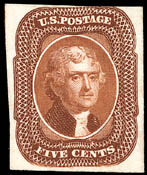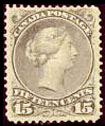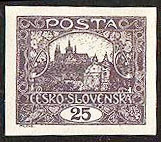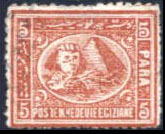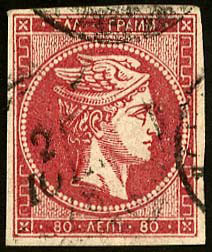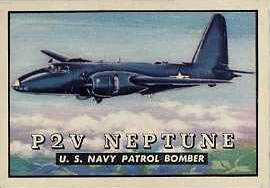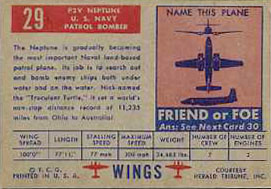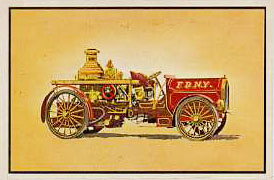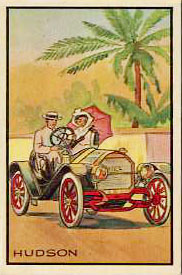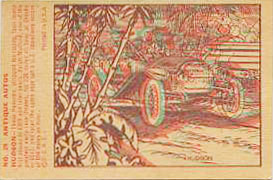|
On the Number 29
| ||||
|
29 in Mathematics
| ||||
| 1) | The 15th odd number = 29 | |||
| 2) | The 10th prime number: 2, 3, 5, 7, 11, 13, 17, 19, 23, 29 | |||
| 3) | The 7th Lucas number: 1, 3, 4, 7, 11, 18, 29, 47, 76, 123 | |||
| 4) | The 6th Pell number: 0, 1, 2, 5, 12, 29, 70, 169, 408, 985 | |||
| 5) |
The 5th Markov number:
1, 2, 5, 13, 29, 34, 89, 169, 194, 233 A Markov number is an integer x, y or z that is part of a solution to the Markov Diophantine equation: x2 + y2 + z2 = 3xyz 29 appears in the the solution: {2, 5, 29}, {2, 29, 169}, {5, 29, 433} e.g. 22 + 52 + 292 = 3(2x5x29) = 4 + 25 + 841 = 3(290) = 870 | |||
| 6) | 58/2 = 29; 87/3 = 29; 116/4 = 29 | |||
| 7) | Sum of the 2nd, 3rd, & 4th square numbers = 22 + 32 + 42 = 4 + 9 + 16 = 29 | |||
| 8) |
Sum of the 2nd & 5th square numbers
= 22 + 52 = 4 + 25 = 29 Sum of the 1st & 15th composite numbers = 4 + 25 = 29 | |||
| 9) |
Sum of the 7th & 8th composite numbers = 14 + 15 = 29 Sum of the 7th even & 8th odd numbers = 14 + 15 = 29 | |||
| 10) |
Sum of the 3rd & 12th composite numbers = 8 + 21 = 29 Sum of the 6th & 8th Fibonacci numbers = 8 + 21 = 29 | |||
| 11) |
Sum of the 4th & 11th composite numbers = 9 + 20 = 29 Sum of the 3rd square number & 3rd abundant number = 9 + 20 = 29 Sum of the 4th lucky number & 3rd abundant number = 9 + 20 = 29 | |||
| 12) | Sum of the 1st, 2nd, 3rd, & 8th prime numbers = 2 + 3 + 5 + 19 = 29 | |||
| 13) | Sum of the 3rd Fibonacci number & the 3rd cube numbers = 2 + 27 = 29 | |||
| 14) |
Sum of the 4th, 5th, 6th, 7th Fibonacci numbers
= 3 + 5 + 8 + 13 = 29 (Leonardo Pisano Fibonacci, 1170-1250) | |||
| 15) | Sum of 1st & 7th triangular numbers = 1 + 28 = 29 | |||
| 16) | Sum of 1st, 2nd, 4th, & 5th triangular numbers = 1 + 3 + 10 + 15 = 29 | |||
| 18) |
Sum of the 1st, 2nd, & 8th
lucky numbers = 1 + 3 + 25 = 29 | |||
| 19) |
Sum of the 4th square number & 5th
lucky numbers = 16 + 13 = 29 | |||
| 20) | Sum of the digits in the 2nd and 3rd perfect numbers 28 & 496 = 2 + 8 + 4 + 9 + 6 = 29 | |||
| 21) | Sum of the digits in the 2nd and 4th perfect numbers 28 & 8128 = 2 + 8 + 8 + 1 + 2 + 8 = 29 | |||
| 22) |
29 appears in the 3rd set of
amicable numbers,
2620 and 2924. Also in the 8th set: 17296 and 18416 More on Amicable Numbers | |||
| 23) | Square root of 29 = 5.3851648 | |||
| 24) | Cube root of 29 = 3.072316826 | |||
| 25) | ln 29 = 3.36729583 (natural log to the base e) | |||
| 26) | log 29 = 1.462397998 (logarithm to the base 10) | |||
| 27) |
Sin 29o = 0.48480962 Cos 29o = 0.874619707 Tan 29o = 0.554309051 | |||
| 28) |
1/29 expressed as a decimal = 0.034482758 | |||
| 29) |
The 186th & 187th digits of pi, π = 29 The 335th & 336th digits of pi, π = 29 The 500th & 501th digits of pi, π = 29 | |||
| 30) |
The 174th & 175th digits of
phi, φ = 29 The 193rd & 194th digits of phi, φ = 29 Phi or φ = 1.61803398874989484820 is a transcendental number, also called the Golden Ratio (or Golden number). Leonardo da Vinci (1452-1519) first called it the sectio aurea, (Latin for the golden section) and related it to human anatomy. Ratios may be found in the Pyramids of Giza & the Greek Parthenon. | |||
| 31) |
The 149th & 150th digits of e = 29 The 155th & 156th digits of e = 29 (e = 2.7182818284 5904523536...) | |||
| 32) |
Binary number for 29 = 11101 (Decimal & Binary Equivalence; Program for conversion) | |||
| 33) |
ASCII value for 29 = GS (Hexadecimal # & ASCII Code Chart) | |||
| 34) |
Hexadecimal number for 29 = 1D (Hexadecimal # & ASCII Code Chart) | |||
| 35) |
Octal number for 29 = 035 (Octal #, Hexadecimal #, & ASCII Code Chart) | |||
| 36) | The Greek-based numeric prefix icosiennea- means 29. | |||
| 37) | The Latin-based numeric prefix nonaicosa- means 29. | |||
| 38) | icosikaienneagon is a polygon with 29 sides. | |||
| 39) | icosikaienneahedron is a polyhedron with 29 faces. | |||
| 40) | The Roman numeral for 29 is XXIX. | |||
| 41) |
 Èr Shí Jiu
is the Chinese ideograph for 29.
Èr Shí Jiu
is the Chinese ideograph for 29.
| |||
| 42) |
 is the
Babylonian number for 29.
is the
Babylonian number for 29.
| |||
| 43) |
29 in different languages: Dutch: twintig-negen, French: vingt-et-neuf, German: neunundzwanzig, Hungarian: húsz-kilenc, Italian: venti-nove, Spanish: veinte-nueve, Swahili: ishirini-tisa, Swedish: tjugu-nio | |||
| 44) |
The Arab alphabet has 29 letters | |||
| 45) |
The Norwegian alphabet has 29 letters It has all the letters in the English alphabet plus Æ æ, Ø ø, Å å | |||
| 46) |
The Finnish alphabet has 29 letters It has all the letters in the English alphabet plus Ä ä, Ö ö, Å å | |||
| 47) |
The Turkish alphabet has 29 letters It has all the letters in the English alphabet, except "q", "w", and "x". In addition, it has the characters 
| |||
|
29 in Science
| ||||
| 48) | Synodic month: Number of days in a lunar cycle = 29.53059 | |||
| 49) | Number of days in a "defective" Jewish lunar month = 29 | |||
| 50) | Number of days in an even Macedonian calendar month = 29 | |||
| 51) | Number of years that Saturn makes a solar revolution = 29.46 | |||
| 52) |
The
human skull has 29 bones (face 14, cranium 8, ear 6, top of throat 1). Some sources consider 22 bones in the human skull, excluding the ears and the hyoid bone. | |||
| 53) | According the Gray's Anatomy, the human intestinal canal is 29 feet long. | |||
| 54) |
Atomic Number of
Copper (Cu) = 29 (29 protons & 29 electrons) Copper is reddish with a bright metallic lustre. It is malleable, ductile, and a good conductor of heat and electricity (second only to silver in electrical conductivity). Its alloys, brass and bronze, are very important. | |||
| 55) |
Average Molecular Weight of Air = 29 (28.96) | |||
| 56) |
Molecular Weight of Lithium oxide,
Li2O = 29.88 | |||
| 57) | Compounds whose melting point = 29oC: Calcium chloride, CaCl22O, MP = 29.92oC Lithium nitrate, LiNO32O, MP = 29.88oC Chloro benzyl chloride, ClC6H4-CH2Cl, MP = 29oC Chloro o-toluidine (m), Cl-C6H3(CH3)NH2, MP = 29-30oC Diethylene dilaurate, (C11H23COSUB>2C2H4)2, MP = 28-30oC Nitro styrene (p), NO2-C6H4-CH=CH2, MP = 29oC [Norbert A. Lange, Handbook of Chemistry, Sandusky, Ohio (1952)] | |||
| 58) |
The 29th amino acid in the 141-residue alpha-chain of Human Hemoglobin is Leucine (L) The 29th amino acid in the 146-residue beta-chain of Human Hemoglobin is Glycine (G) Single-Letter Amino Acid Code Alpha-chain sequence of human hemoglobin: VLSPADKTNVKAAWGKVGAHAGEYGAEALERMFLSFPTTKTYFPHFDLSH GSAQVKGHGKKVADALTNAVAHVDDMPNALSALSDLHAHKLRVDPVNFKL LSHCLLVTLAAHLPAEFTPAVHASLDKFLASVSTVLTSKYR Beta-chain sequence of human hemoglobin: VHLTPEEKSAVTALWGKVNVDEVGGEALGRLLVVYPWTQRFFESFGDLST PDAVMGNPKVKAHGKKVLGAFSDGLAHLDNLKGTFATLSELHCDKLHVDP ENFRLLGNVLVCVLAHHFGKEFTPPVQAAYQKVVAGVANALAHKYH | |||
| 59) |
"Haemoglobin Lufkin: β29 (B11) Gly replaced by Asp. An unstable hemoglobin variant involving an internal amino acid residue." R.M. Schmidt, K.C. Bechtel, M.H. Johnson, B.L. Therrell, Jr. W.F. Moo-Penn, Hemoglobin Vol. 1, 799-814 (1977) Hemoglobin Lufkin was found in a Black-American family. Structural analysis of the abnormal hemoglobin indicates a substitution of aspartic acid for glycine at position 29 in the beta chain. Marked instability of the variant hemoglobin is demonstrated by the rapid formation of inclusion bodies upon exposure of the red cells to redox dyes and by the large percentage of precipitated hemoglobin at 65 oC. The oxygen affinity, the Bohr effect, and the degree of cooperativity of Hb Lufkin and Hb A are similar over the physiologic pH range. However, at acid pH the oxygen affinity of the variant is increased. Unlike other variants in the B helix, Hb Lufkin is not associated with methemoglobinemia. | |||
| 60) |
The 29th amino acid in the 153-residue sequence of
sperm whale myoglobin is Leucine (L) [A.B. Edmundson, Nature 205, 883-887 (1965)] | |||
| 61) |
The 29th amino acid in the 124-residue enzyme
Bovine Ribonuclease is Methionine (M). It is next to Glutamine-28 and Methione-30. [C. H. W. Hirs, S. Moore, and W. H. Stein, J. Biol. Chem. 235, 633 (1960)] | |||
| 62) |
The 29th amino acid in the 32-residue sequence of
human calcitonin is Valine (V). In salmon calcitonin, the 29th residue is Serine (S). In bovine and porcine calcitonin, the 29th residue is Proline (P). [H.D. Niall, et. al., Proc. Natl. Acad. Sci. 64, 771-778 (1969)] Sequence alignment of calcitonin by Margaret O. Dayhoff [Atlas of Protein Sequence and Structure, Vol. 5, Suppl. 3 (1978), p. 149] shows conservation of Gly-28 in all 9 species— human, bovine, sheep, pig, rat, eel, and salmon 1-3. European J. Biochem. 269, 780-791 (2002) | |||
| 63) |
Glucagon is a 29 amino acid peptide hormone liberated in the a cells of the islets of Langerhans. The 29th amino acid of glucagon is Threonine (T) Chou & Fasman's protein conformation prediction showed that glucagon 19-29 region to have both α-helical and β-structural potential. Biochemistry, Vol. 14, 2536-2541 (1975). | |||
| 64) |
β-Turn Frequencies in 29 proteins: [from Table VIII (p. 71) of P.Y. Chou & G.D. Fasman, Advances in Enzymology 47, 45-148 (1978)] [Peter Y. Chou & Gerald D. Fasman, "β-Turn in Proteins", Journal of Molecular Biology, Vol. 115, 135-175 (1977)] Abstract: The X-ray atomic co-ordinates from 29 proteins of known sequence and structure were utilized to elucidate 459 β-turns in regions of chain reversals. | |||
| 65) |
An automated computer prediction of the chain reversal regions of globular proteins was published using bend frequencies and β-turn conformational parameters (Pt) determined from 408 β-turns in 29 proteins calculated from x-ray atomic coordinates. P. Y. Chou & G. D. Fasman, "Prediction of β-Turns" Biophysical Journal, Vol. 26, 367-383 (1979) Using the bend frequencies based on 29 proteins β-turn probability profiles were calculated for the C-peptides of 10 mammalian proinsulins, for 7 proteinase inhibitors, and for 12 species of pancreatic ribonucleases. Results suggest that chain reversal regions play an essential role in keeping the active structural domains in hormones and enzymes intact for their specific biological function. P. Y. Chou & G. D. Fasman, "Conservation of chain reversal regions in proteins" Biophysical Journal, Vol. 26, 385-399 (1979) | |||
| ||||
| ||||
| 70) |
 Messier object M29
Messier object M29M29 is a rather coarse and less impressive cluster, situated in the highly crowded area of Milky Way near Gamma Cygni, at a distance of 4,000 light years from the Earth. Open cluster M29 was discovered by Charles Messier, who cataloged it on July 29, 1764. The four brightest stars form a quadrilateral, and another three, a triangle north of them. | |||
| 71) |
The New General Catalog (NGC)
is a listing of nearly 8,000 non-stellar objects, such as star clusters, nebulae, and galaxies, compiled by J.L.E. Dreyer (1887). NGC 29 is an elliptical galaxy in the constellation Andromeda. (Image) | |||
| 72) |
29 Amphitrite is one of the largest Main belt asteroids. It has a relatively bright surface and a composition of silicates rock and iron-nickel metals. Amphitrite was discovered by Albert Marth on March 1, 1854. It was his only asteroid discovery. It is named after Amphitrite, a sea goddess in Greek mythology. Its diameter is 1212.2 km, rotation period of 5.39 hours, and orbital period of 4.08 years. "Asteroid 29 Amphitrite— Surface Composition and Spectral Variation" by J.F. Bell, et. al., Astron. Soc. Pacific Pub. 97, 892 (Oct. 1985) | |||
| 73) |
Volume 29 of
Nature (1883)— A Weekly Illustrated Journal of Science was published by Macmillan & Co., London (November 1, 1883 to April 24, 1884), pp. 1-616 Wordsworth epigraph on cover: "To the solid ground Of Nature trusts the mind which builds for aye." Four interesting articles in Nature XXIX: 1) J. Norman Lockyer, "Movements of the Earth: II. Measurement of Time", Nature XXIX, 65-69 (Nov. 15, 1883): It has been shown how, by the application of geometrical and optical principles, the measurement of angular space has been carried cown to the 1/100th of a second of arc, such a quantity being 1/129,600,000th part of an entire circumference, and when such an accuracy as this has been attained, and the altitude or the azimuth of the sun, or moon, or any other heavenly body can be correctly stated with this exactitude, it will be seen how much better off in the way of defining positions is the modern astronomer than was Hipparchus with his 1/3rd, and Tycho Brahe with his 1/4th of a degree... The next thing to be done, is to see how far we moderns have got in another kind of measurement, no longer the measurement of arc— the measurement of angular distance— but the measurement of time... Time can be divided down to the 1/10th of a second, or to the 864,000th part of a day, not only by a clock, but also by this chronometer... In the Book of Job, there is a reference to the constellation of Orion, also called Charles's Wain, or the Great Bear, known to the ancients. If the stars were very close to us the smallest motion either of earth or star would at once change their apparent positions, and would prevent this fixity of appearance, and the skies would be filled, not with the constellations with which we are so familiar, but with noew and ever-changing clusters of stars. This constancy of the constellations, not only from century to century, but from era to era, clearly proves that the stars of which they are made up must be at an infinite distance from the earth. [Measure changes in star's positions over time.] 2) William Thomson, (Lord Kelvin) "Scientific Worthies: XXIII— Sir Charles William Siemens (Born April 4, 1823; Died Nov. 19, 1883)" Nature XXIX, 97-99 (November 29, 1883), 250-254 (July 12, 1883), 274-278 (July 19, 1883) The death of Sir William Siemens, coming as it did so suddenly and unexpectedly, has been felt as a severe blow and grief through a far wider circle than that of his personal friends... William Siemens had the great characteristic common to all men who have left their mark on the world, the perfervidum ingeniium, in which thought leads to instant action. When he was only 20 years old he came to England with his brother Werner, to realise an invention for electo-gilding. A year later he invented the chronometric governor, and later, the watermeter. They later invented the Siemens armature, and their achievements in Atlantic cable-laying... In private life Sir William Siemens, with his lively bright intelligence always present and eager to give pleasure and benefit to those around him, was a most lovable man, singularly unselfish and full of kind thought and care for others. The writer of the present article has for nearly a quarter of a century had the happiness of personal friendship with him. The occasions of meeting him, more frequent of late years, and more and more frequent to the very end, are among the happiest of recollections. The thought that they can now live only in memory is too full of grief to find expression in words. 3) C. Piazzi Smyth, "The Remarkable Sunsets" Nature XXIX, 149-153 (Dec. 13, 1883): On December 3 [1883], the reds were so powerful at certain times, and the air so clear between me and them, that the young crescent moon, though low down in the sky, shone by contrast to the scarlet cloudlets aroud it with a sort of supernatural lustre of blue silver; while the gaslights under the same constrast, though in reality a gross beery brown in colour, appeared of a delicate sulphur, almost greenish, yellow. Those clouds, therefore, were so red in consequence of something that had happened to the sunlight illumining them which had not happened to that illumining the moon... But the sunset of December 5 was very different. In the course of the evening there were two or three distinct atempts, as it were, for the clouds to assume red hues, but they lasted for only a few seconds each; and though some aspects of the scene were very fine pictorially, it had to be classed as a "yellow sunset"... this may yet have something to do with the green and blue suns seen in India last September, and they with the great volcanic explosions in Java last August, so destructive of human life! 4) E. Metzger, "Gleanings from the Reports Concerning the Eruption of Krakatoa" Nature XXIX, 240-244 (Jan. 10, 1884): On the Island of Bali strong detonations were heard in the morning of August 26 [1883]... On borad the Charles Bal at 4:15 an eruption at the east of Krakatoa was observed; the masses which were driven forth to the east had the apperance of a furious squall... At 5 pm sky darkening, detonations stronger, pumice-stones pouring down, rather big pieces... Waves at Anjer (August 27, 9 am) estimated to be 135 feet (about 41 metres)... Sibessie was from the sea to the top buried under ashes (all people killed)... Up to November 1, they counted 32,635 persons killed by the eruption. 5) M.C. van Doorn, officer in command of H.M. ship Hydrograaf, "The Eruption of Krakatoa" Nature XXIX, 268-269 (Jan. 17, 1884): Sixteen volcanoes now working between the spot where Krakatoa was before and Sebesie. Such was one of the first reports which was sent by cable to Singapore, and which we heard at Pontianak. Krakatoa has not entirely disappeared, while, till now, no new volcanoes are visible in the neighborhood... The northern part of the island has entirely disappeared... Where was land before, there is now no bottom to be found; at least we could not fathom it with lines of 200 fathoms (360 metres) long... Lang Island formerly covered by a luxurious vegetation, is now buried under a mass of pumice-stone, and appear like shapeless clods of burst clay... Sebesie is also covered with ashes up to the top— 859 metres— which appear like a grayish-yellow cloth. Krakatoa Eruption of August 26, 1883 | |||
| 74) | Volume 29 of
Science (1908)— a Weekly Journal devoted to the Advancement of Science was published by The Science Press, New York (January-June 1909), pp. 1-1014 Interesting articles in this volume: 1) Edward L. Nichols, "Science and the Practical Problems of the Future" Science XXIX, 1-10 (January 1, 1909) The end of the world has long been a favorite subject of speculation. The ancients and our forefathers of the middle ages were pleased to imagine some sudden final disaster; as by fire. Science in our own day furnishes a basis for a more definite forecast... Unchecked wastefulness as in the extermination of the bison, in the destruction of forests, in the exhaustion of the soil, in the disappearance of fish from our coasts and streams, in the pouring into the air of an incredible amount of unused fuel from coke ovens must cease or our ruthless exploitation wil bring disaster on generations soon to come... World power in the near future is to be a question of knowledge— not of battleships— and what is now spent on armaments is to be devoted to its pursuits. 2) Josiah Royce, "The American College and Life" Science XXIX, 401-407 (March 12, 1909) When I observe that a student is inattentive, I try to interest him. When he is wilful, I try to get past his wilfulness as I can. I do not know what, as a teacher, I accomplish. I simply try my best... There is a place in the college for the great teacher with a mind like that of Socrates, the prince of teachers, produces indirectedly, by acting as the midwife, and by delivering others of the ideas with which their own minds are pregnant... We want teaching and investigation to become more and more what they ought to be— one and inseparable. 3) Frederic S. Lee, "Physical Exercise from the Standpoint of Physiology" Science XXIX, 555--527 (April 2, 1909) Mythologists tell us that Aesculapius, the god of healing, was slain by a thunderbolt from Zeus because of complaints which had reached that deity that Aesculapaius had become so skilful in his art that Hades was fast being depopulated. His tragic end, however, did not deter his courageous daughter, Hygeia, the goddess of health. The aim of her cult is to bring to, and maintain at, its highest efficiency the human organic machine... Physiology teaches that the fatigue of one tissue from over-use means the fatigue of all tissues... it is the teaching of common sense to avoid physical excess. Common-sense hygiene should have its place in a liberal education. 4) Victor C. Vaughan, "The Physical Basis of Life" Science XXIX, 799-805 (May 21, 1909) The cell may be regarded as the morphological unit of life, but form in and of itself, and as recognized by the eye, is not essential to the manifestations of life. We know no life apart from matter, and matter and energy are the only things that we do know... The only difference between living and non-living matter is that within the former there is constant and rhythmic metabolism, while in the latter no such process occurs. Metabolism, the one characteristic phenomenon of living matter, involves intramolecular change; consequently the molecule, and not the cell, is the unit of life... Sensibility, or the capability of responding to stimuli, is, as Claude Bernard said, to a certain extent the starting-point of life; it is a primary phenomenon and from it all others, physiological, intellectual and moral develop... Since nothing comes from nothing, the basis of psychical action must lie in the physiolo-chemical elements of the organism. | |||
| 75) |
 B-29 Superfortress:
Once the largest U.S. Air Force bomber,
B-29 Superfortress:
Once the largest U.S. Air Force bomber,it is now classified as a medium bomber. It can carry five tons of bombs to a target 2000 miles away, drop the bombs, then return to its base non-stop. It can also refuel in midair. The first one built made its maiden flight on Sept. 21, 1942. The second atomic bomb was dropped from a B-29 on Nagasaki on August 9, 1945. Wing span: 141'3"; Length: 99 feet; Height: 27'9"; Maximum speed: 357 mph; Weight: 140,000 lbs. B-29 Superfortress appears as Card #51 of Topps Wings: Friend or Foe (1952). | |||
| 76) |
The U.S. T-29 tank was developed in March 1944 in order to improve upon what became the M-26 Pershing. The 62 ton T-29 mounted a 105-mm gun with a rammer to help the crew with the heavy ammunition. The T-29 featured a stereoscopic rangefinder projecting from both sides of the turret. Because the ammunition was heavy, it was in two parts, and two loaders were needed. On the T-29, armor ranged from 4 inches on the hull to 11" on the mantlet, and a V-12 powered the tank. Vehicle speeds were 18-1/2 mph. | |||
|
29 in Mythology & History
| ||||
| 77) |
29 Symbolism: Its potency is indistinct. One whose name corresponds to the number is extravagant, nervous, religious, suspicious, and in danger from heights and water. Physical weak spots: brain and nerves. Cabalistic traits: anxiety, doubting, virtuous, zelous; in low form: fanatic, hypocritical. In Sumer a 29th day in a month was one of sack-cloth and ashes, suggesting mourning. — Gertrude Jobes, Dictionary of Mythology, Folklore and Symbols Scarecrow Press, New York, 1962, Part 2, p. 1613 | |||
| 78) |
There are 32 Paths of Wisdom in the
Sepher Yetzirah or
Book of Formation (200 AD). The 29th Path is the Corporeal Intelligence, so called because it forms every body which is, formed beneath the whole set of worlds and the increment of them. Isidore Kozminsky, Numbers: Their Meaning and Magic, Rider, London, 1912, p. 48 Order of the Golden Dawn: The 29th Path need to be balanced with intellect and reason. | |||
| 79) |
Sabian symbols Aries 29o: A celestial choir has arisen to sing. Taurus 29o: Capability— Two cobblers working at a table. Gemini 29o: Quickening— The first mockingbird in spring. Virgo 29o: A Man is Gaining Secret Knowledge from an Ancient Scroll he is Reading. Dan Rudhyar, An Astrological Mandala: The Cycle of Transformations and its 360 Symbolic Phases, Vintage, New York (1973), p. 286 (Image) | |||
| 80) |
 There are 36 Angel Cards
There are 36 Angel Cardsat the website Portrait Corner. Angel Card 29 is the Angel of Harmony. This Angel is attended by the most beautiful birds of the air, flocking to the sanctuary of its peaceful spirit. Symbols of flourishing concord, the songbirds show the sense of harmony that good relationships can give to us. | |||
| 81) |
The 29th day of the year =
January 29 [January 29 Birthdays: William McKinley (1843-1901); Emanuel Swedenborg (1688-1772); Thomas Paine (1737-1809); Anton Chekhov (1860-1904); Romain Rolland (1866-1944); John D. Rockefeller Jr. (1874-1960); W.C. Fields (1880-1946); Opray Winfrey (born 1/29/1954)] | |||
| 82) |
There are 29 days in February during a leap year—
February 29 [February 29 Birthdays: John Philip Holland (1840-1914); Gioacchino Rossini (1792-1868); Herman Hollerith (1860-1929); Augusta Savage (1892-1962); Jimmy Dorsey (1904-1957)] | |||
| 83) |
Events in 29 B.C.— • Greek mariners employed by Rome's Octavian open the ancient trade routes from Egypt to India as peace returns to the Roman world. James Trager (Ed.), The People's Chronology (1979), p. 34 • March 1— Horace writes the ode Occidit Daci Cotisonis agmen • Gaius Julius Caesar Octavianus becomes Roman Consul for the fifth time. His partner is Sextus Appuleius. He was granted the title of imperator, and for the third time in Roman history the doors of the Temple of Janus were closed, signaling peace. (Wikipedia: 29 BC) | |||
| 84) |
Events in 29 A.D.— • Jesus of Nazareth leaves Galilee after a brief ministry and travels to Jerusalem to observe Passover at a ritual Seder meal that will be depicted by future painters as The Last Supper. Jesus has antagonized the priestly class by driving the money changers out of the Great Temple at Jerusalem and attacking the hypocrisy of the privileged classes. With a price on his head, he is betrayed by his disciple Judas Iscariot and seized by Roman soldiers who deliver him to the high priest and the Sanhedrin (great council and tribunal of the Jewish nation). He is condemned as a blasphemer and sent to the ruler of Galilee Herod Antipas who sends him back to Pilate. He is finally turned over to Jewish authorities, and he is crucified on Golgotha, a knoll to the north of Jerusalem near the Damascus Gate. Disciples of Jesus will profess to have seen him resurrected after his burial in the tomb of Joseph of Arimathea. They will proclaim him Messiah, and they will found Christianity that will grow to dominate much of the world. James Trager (Ed.), The People's Chronology (1979), p. 36 • Romans captured Sofia. • Death of Livia Drusilla (58 BC-29 AD), wife of Augustus, and the most powerful woman in Roman history, acting several times as regent and being Augustus' faithful advisor. She was also mother of the Emperor Tiberius. (Fact-index.com: 29 AD) | |||
| 85) |
29th President of the United States is
Warren G. Harding (1865-1923), who served (1921-1923). He died in office and was succeeded by Calvin Coolidge. | |||
| 86) | 29th State to enter the Union is Iowa (December 28, 1846) | |||
| 87) |
At Age 29: Prince Siddharta (563 BC-486 BC), later the Buddha, leaves his wife and newborn son, to become a penniless wandering monk. St. Francis of Assisi (1181-1226), writes Friars Minor (1210) the beginning of the Franciscans Order in Italy. Charles II (1630-1685), becomes British King (May 29, 1660) at the Restoration. He was 18 when his father King Charles I was executed. Robert Adam (1728-1792), considered Scotland's most famous architect, surveys the Emperor Diocletian's palace at Split (1757) in only 5 weeks— starting his own distinctive style incorporating light, color, and detailed ornamentation. James Watt (1736-1819), Scottish inventor, has a sudden insight for the design of the steam engine (1765). In two days, he produces almost all the basic principles of the future power source. Wolfgang Amadeus Mozart (1756-1791), composes Piano Concerto in C Major, K.467 (1785). This piece was later used as the theme music in the film Elvira Madigan (1967) Eli Whitney (1765-1825), American inventor, patents the cotton gin (1794) which mechanically separates cotton seeds from the fiber. Percy Bysshe Shelley (1792-1822), British poet, dies on July 8, 1822 from drowning in a sailing accident in the Mediterranean. His body is found with a volume of Keats in one pocket, and of Sophocles in the other. Charles Babbage (1792-1871), British mathematician, makes his first attempt to invent a calculating machine (1822). Dies at 77 with this pioneering work in computers. Henry Mayhew (1812-1887), British journalist, and one of the founders of Punch magazine (1841). Richard Wagner (1813-1883), has the first performance of his opera Rienzi (1842) and of The Flying Dutchman. The score of Rienzi is finished in debtors' prison as Wagner is plagued with debt for most of his life. Emily Brontë (1818-1898), British novelist, publishes Wuthering Heights (1847), but dies a year later. Anne Brontë dies at 29, having published novels at 27 and 29. Charlotte Brontë publishes Jane Eyre at 31, but dies at 39. Their brother, Branwell Brontë, dies at 31. Their fater, Ulsterman Reverend Patrick Brontë (1777-1861), survives them all, dying at 85. Karl Marx (1818-1883)), German philosopher & political economist publishes The Communist Manifesto (Feb. 21, 1848) with Friedrich Engels (age 27). Alfred Waterhouse (1830-1905), British architect, wins competition for the huge Manchester Assizes (1859), with a design in Venetian Gothic. Lawrence Alma-Tadema (1836-1912), Dutch-born painter of the Victorian era, develops his lifelong style around 1865— sunny classical buildings of marble filled with luscious figures, draped and undraped. Alexander Graham Bell (1847-1922), Scottish/U.S. inventor, patents the telephone (1876). The first message ever sent by telephone is "Mr. Watson, come here. I want you." On March 7, 1876, Bell was issued patent number 174,465. Giuseppe Sacconi (1854-1905), Italian architect, won a contest of projects for the Monument of Victor Emanuel II (Rome, Piazza Venezia) in 1884. The monument was built 1885-1911, and completed after Sacconi's death. James Elroy Flecker (1884-1915), British poet, publishes The Golden Journey to Samarkand (1913), but he dies at 30 from tuberculosis. He also wrote two novels. Louis B. Mayer (1885-1957), U.S. film producer, with Samuel Goldwyn formed MGM, Metro-Goldwyn-Mayer (1924). As studio boss, he built MGM into the most financially successful motion picture studio in the world. Bruce Barton (1886-1967), U.S. advertising executive, founder of Batten, Barton, Durstine & Osborn (BBDO) in 1918. Wrote The Man Nobody Knows (1925) depicting Jesus Christ as a successful salesman, publicist and role model or the modern businessman. Sigmund Romberg (1887-1951), Jewish composer, writes operatta The Desert Song (1926). Ludwig Wittgenstein (1889-1951), Austrian philosopher, publishes Tractatus Logico-Philosophicus (1918) John B. Kelly (1889-1960), U.S. oarsman wins 126 consecutive races in 1919-1920, a record that includes a gold medal at the 1920 Olympics in Antwerp. His daughter Grace Kelly is born (Nov. 12, 1929) when he is 38. Agatha Christie (1890-1976), British novelist, publishes her first book The Mysterious Affair at Styles (1920). She had learned about poisons while working in a hospital dispensary. She wrote over 80 novels and plays. Frederick Banting (1891-1941), Canadian chemist, discovers insulin (1921) together with Charles Best (age 22). Awarded Nobel Prize in Medicine (1923). Dorothy Parker (1893-1967), American writer & poet, slashes her wrists, but survives (1923). At 32, her first book of poems Enough Rope makes her rich & famous. She's best known for her caustic wit, wisecracks, and sharp eye for urban foibles. F. Scott Fitzgerald (1896-1940), American novelist, publishes The Great Gatsby (1925). Ernest Lawrence (1901-1958), U.S. physicist, invents the cyclotron (1930). Awarded 1939 Nobel Prize in Physics. W. H. Auden (1907-1973), British poet & critic, writes screenplay for Night Mail (1936), the film on the overnight mail train between London and Scotland. Lyndon B. Johnson (1908-1973), U.S. President, becomes Congressman (1937). Douglas Fairbanks (1909-2000), American actor, stars in The Prisoner of Zenda (1937). Errol Flynn (1909-1959), American actor, stars in The Adventures of Robin Hood (1938). Alan Ladd (1913-1964), U.S. actor, performance in This Gun for Hire (1942) makes him a star. John F. Kennedy (1917-1963), U.S. President, becomes Congressman (1947). Jack Kerouac (1922-1969), American novelist & poet, writes On the Road in 3 weeks (1951). Sid Caesar (born Sept. 8, 1922), U.S. comic actor & writer has hit TV show Your Show of Shows (1951) with Imogen Coca (43). At 35, he employs writers such as Woody Allen (22) & Neil Simon (30). Marlon Brando (1924-2004), American actor, stars in The Wild Ones (1953). Billy Halley (1925-1981), U.S. musician, has hit "Rock Around the Clock" (1955). Marilyn Monroe (1926-1962), American actress, stars in The Seven-Year Itch (1955). Clint Eastwood (b. May 31, 1930), U.S. actor, stars in Rawhide on TV (1959) for 7 years. Delphine Seyrig (1932-1990), French actress, stars in Last Year in Marienbad (1961). François Truffaut (1932-1984), French film director, directs Jules et Jim (1961). The film starred Jeanne Moreau, Oskar Werner, and Henri Serre. Elizabeth Taylor (b. Feb. 27, 1932), American actress, stars in Butterfield 8 (1961). She was awarded an Oscar as Best Actress for this film. Roman Polanski (b. Aug. 18, 1933), French film director, directs Knife in the Water (1962). Glen Campbell (b. April 22, 1936), U.S. singer, has hit "By the Time I Get to Phoenix" (1967). Claude Lelouch (b. Oct. 30, 1937), French film director, directs A Man and a Woman (1966). Stewart Brand (b. Dec. 14, 1938), U.S. author, created The Whole Earth Catalogue (1968). Carole King (b. Feb. 9, 1942), U.S. musician, sings "Tapestry" (1971). Bob Woodward (b. March 26, 1943), U.S. journalist, with Washington Post colleague Carl Bernstein (28), uncovers the Watergate scandal (1972) that led to the resignation of President Richard Nixon (1974). Erno Rubik (b. July 13, 1944), Hungarian inventor, & professor of Architecture, invents the Rubik's Cube (1974) and other mechanical puzzles. Barry Manilow (b. June 17, 1946), U.S. singer & songwriter, has hit "Mandy" (1974) and becomes the most successful solo artist in the world. Linda Ronstadt (b. July 15, 1946), U.S. singer, Pop-rock superstar, was selected best female vocalist (1975), and again at 30 and 31. Meryl Streep (b. June 22, 1949), American actress, stars in Kramer vs. Kramer (1979). The film won 5 Oscars (1980) for Best Picture, Director, Screenplay, Actor, & Actress. Naomi James (born 1949, New Zealand), was the first woman to sail solo around the world via Cape Horn. She finished her voyage around the globe on June 8, 1978 after 272 days, improving Sir Francis Chichester's solo round-the-world sailing record by two days. [Sources: World Almanac Book of Who (1980); Jeremy Baker, Tolstoy's Bicycle (1982), pp. 179-185; Web Links] | |||
| 88) |
.jpg) Stanford Bronze Plaque 29
Stanford Bronze Plaque 29on the ground to the right of Stanford University's Memorial Church is dedicated to the Class of 1929. It is to the left of Building 60 (Archaeology Center). The first graduating class at Stanford was 1892. In 1980, Stanford Provost Don Kennedy strolled around the Inner Quad and calculated that it would take 512 years for the bronze class plaques embedded in the walkways to circle the entire area ending with the Class of 2403. | |||
|
29 in Geography
| ||||
| 89) |
United States Cities located at 29o latitude: Daytona Beach, Florida: 29o 12' N latitude & 81o 1' W longitude Gainesville, Florida: 29o 39' N latitude & 82o 19' W longitude Galveston, Texas: 29o 18' N latitude & 94o 47' W longitude Houston, Texas: 29o 45' N latitude & 95o 21' W longitude New Orleans, Louisiana: 29o 57' N latitude & 90o 4' W longitude San Antonio, Texas: 29o 25' N latitude & 98o 29' W longitude The World Almanac and Book of Facts (2005), pp. 497-498 | |||
| 90) |
Cities located at 29o latitude: Chongquing, China: 29o 33' N latitude & 106o 33' E longitude Cairo, Egypt: 29o 52' N latitude & 31o 20' E longitude Kuwait, Kuwait: 29o 20' N latitude & 48o 0' E longitude Maseru, Lesotho: 29o 19' N latitude & 27o 29' E longitude Shiraz, Iran: 29o 38' N latitude & 52o 34' E longitude Sidi Ifni, Morocco: 29o 24' N latitude & 10o 12' W longitude | |||
| 91) |
Cities located at 29o longitude: Istanbul, Turkey: 40o 58' N latitude & 28o 50' E longitude | |||
| 92) |
The Congo River is 2900 miles (4,670 km) long. It is the largest river in Western Central Africa, the 2nd longest in Africa (after the Nile) and 8th longest river in the world. The World Almanac and Book of Facts (2005), p. 499 | |||
| 93) |
29 appears in the code for
international direct dial
phone calls for Saint Helena (290), Eritrea (291), Aruba (297), Faroe Islands (298), Greenland (299), and Benin (229). | |||
| 94) |
Twentynine Palms is a town in California that is the home of Joshua Tree National Park. It is the gateway to scenic Mojave Desert. Population: 25,171 (Jan. 1, 2003), Male 65%, Female 35% The 29 Palms Art Gallery is hosted by the 29 Palms Artists' Guild, founded in 1952. Address: 74055 Cottonwood Drive, 29 Palms, CA 92277 | |||
| 95) |
Hotel Deauville
is located at 103 East 29th Street, New York City, NY 10016 The 54-rooms hotel is within walking distance of Times Square & the Empire State Building. | |||
| 96) |
Harris Suspender Co.
was located at 50 W. 29th Street, New York City, in 1938 and stayed until 1942. It went out of business around 1948. | |||
| 97) |
29th Street Repertory Off-Broadway Theatre
based in NYC, in the past has featuring work from or by Edward Norton and Charles Bukowski. Address: 212 W 29th Street, #2, New York, NY 10001 (Video) | |||
| 98) |
Georgetown Suites Harbour
is an all suite hotel located in the heart of historic Georgetown Address: 1000 29th Street, NW, Washington DC 20007 | |||
| 99) |
Russian American Building 29
in Sitka, Alaska, has been designated as a National Historic Landmark. A finely crafted, vernacular log building covered with siding remaining from Sitka's first years as a seat of government in the period following the purchase of Alaska by the U.S. in 1867. | |||
| 100) | Building 29 is W.K. Kellogg Arabian Horse Center on the Cal Poly Pomona Campus. | |||
| 101) |
The glass faces of the Cira Centre changes with each passing cloud. It stands on Arch Street next to Amtrak's 30th Street Station and creates a striking new western gateway to the city of Philadelphia. The 29-floor building was designed by the architect Cesar Pelli, and will open in October 2005. View of Philadelphia from 28th floor. (New York Times, March 16, 2005) | |||
| 102) |
29 floors buildings under construction (2006-2007): • Grove Pointe, Jersey City, NJ 29 floors • 400 Beach Drive, St. Petersburg, FL, 316 ft, 29 floors • Tower at Two Midtown, Miami, FL, 320 ft, 29 floors | |||
| 103) |
Hilton New Orleans Riverside is
a 29-floors hotel with 3 AAA ratings. Address: 2 Poydras Street, New Orleans, LA 70140 | |||
| 104) |
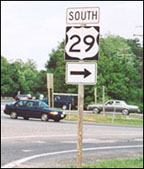 U.S. Highway 29
U.S. Highway 29North Terminus: Mt. Hebron, Maryland (1960-present) South Terminus: Pensacola, Florida (1960-present) Historical North Terminus: Kings Mountain, NC (1926-1932) Culpeper, VA (1932-1934) Baltimore, MD (1934-1949) Historical South Terminus: Tuskegee, AL (1926-1935) Pensacola, FL (1935-1960) Map of US 29 | |||
| 105) |
 Interstate 29
(I-29) is an interstate highway in the Midwestern United States.
Interstate 29
(I-29) is an interstate highway in the Midwestern United States.It runs from Kansas City, Missouri at a junction with Interstate 35 and Interstate 70 to the Canadian border near Pembina, North Dakota, where it connects with Manitoba Provincial Highway 75 via the short Manitoba Provincial Highway 29. History of Interstate 29 in Iowa. | |||
| 106) |
Manitoba Provincial Highway 29
is a provincial highway in the Canadian province of Manitoba connecting Highway 75 to the U.S. border and Interstate 29. The highway, which is currently a short at-grade expressway connection with I-29, is less than 1 km (about 1/2 mile) long. | |||
| 107) |
 California State Route 29
(Photos)
California State Route 29
(Photos)is a California State Highway that travels in a north-south direction from CA-20 in Upper Lake (North Terminus) to Interstate 80 in Vallejo (South Terminus) The 106-miles (233 km) highway passes through Lakeport, Clear Lake, Lower Lake, Middletown, Calistoga, & Napa. AAA California State Map (May 2001) | |||
| 108) | It took 29 hours to get from New York to Chicago in 1873. | |||
| 109) | 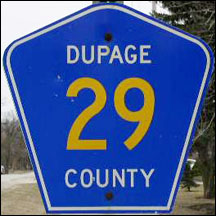 Highway 29 in DuPage County, Illinois
Highway 29 in DuPage County, IllinoisDuPage County Map Within DuPage County: Argonne National Lab Fermi National Accelerator Lab | |||
| 110) |
.jpg) King's Highway 29
King's Highway 29in Ontario, Canada (1927-1998) Southern terminus: Hwy 2 - Brockville Northern terminus: Hwy 15 - Smiths Falls Length: 52.3 km / 32.5 miles (1997). | |||
|
29 in Sports and Games
| ||||
| 111) | Baseball's
29th All-Star Game was played at Yankee Stadium, New York City, on July 13, 1960. NL defeats AL 6-0 Only two days after the 28th All-Star Game, the squads met a second time in Yankee Stadium. Vernon Law, who had completed and saved the game in Kansas City, started and won this one. His two shutout innings set the pace for the five NL pitchers who followed him to give the NL its first shutout in 20 years. The AL stars got only two fewer hits than the NL (8 to 10), but only one was for extra bases, whereas four of the NL hits were homers. Eddie Matthews hit a two-run homer in the 2nd inning, Willie Mays homered in the 3rd, Stan Musial homered in the 7th— a mighty blast three tiers up in right field, and Ken Boyer completed the rout with a two-run homer in the 9th inning. Mays, having tripled & doubled in the previous game had another 3-for-4 game. Total Baseball, 4th Ed., Viking, NY (1995), p. 263 (The Baseball Encyclopedia, 8th Edition, Macmillan, NY, 1990, p. 2766) | |||
| 112) |
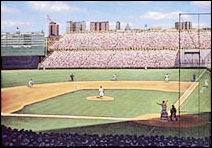 Baseball's
29th World Series (1932):
Baseball's
29th World Series (1932):New York Yankees defeats Chicago Cubs 4-0 Lou Gehrig hits .529 (9 for 17), with double, 3 homers, 9 runs, 8 rbi. Babe Ruth hits .333 (5 for 15), with 2 homers, 6 runs, 6 rbi. The Series is best remembered for Babe Ruth's "called" shot in Game 3, when he pointed his bat at pitcher Charlie Root in the 5th inning, and broke the game's 4-4 tie a moment later with a massive homer into the center field bleachers. Gehrig followed with homer. Total Baseball, 4th Ed., Viking, NY (1995), p. 324 (The Baseball Encyclopedia, 8th Edition, Macmillan, NY, 1990, p. 2657) | |||
| 113) |
Perry Werden is
ranked in 4th place with 29 triples in a single season (1893). (The Baseball Encyclopedia, 8th Edition, Macmillan, NY, 1990, p. 33) | |||
| 114) |
Baseball pitchers Vic Willis (1905),
Bill Hart (1896), and
Jack Taylor (1898) are tied for 4th place for losses with 29 in a single season. (The Baseball Encyclopedia, 8th Edition, Macmillan, NY, 1990, p. 35) | |||
| 115) |
National League Home Run Leaders in Baseball: 1943 Bill Nicholson, Chicago Cubs, 29 Homers World Almanac & Book of Facts 2005, p. 883 | |||
| 116) |
American League Home Run Leaders in Baseball: 1919 Babe Ruth, Boston Red Sox, 29 Homers World Almanac & Book of Facts 2005, p. 882 | |||
| 117) |
American League Pitching Victory Leaders in Baseball: 1909 George Mullin, Detroit Tigers, 29 Wins 1919 Edward Cicotte, Chicago White Sox, 29 Wins 1944 Hal Newhouser, Detroit Tigers, 29 Wins World Almanac & Book of Facts 2005, p. 897 | |||
| 118) |
 Joe DiMaggio's 29th consecutive hit-game
Joe DiMaggio's 29th consecutive hit-gameoccurred on June 5, 1941 when he tripled off Hal Newhouser of the Detroit Tigers. (56-game hitting streak) | |||
| 119) |
Rickey Henderson had his 29th stolen base (2nd base) against Len Barker of the Cleveland Indians on May 8, 1982 when he set the season stolen base record of 130 in 1982. | |||
| 120) |
29 runs were scored by George Brett, 1980 Kansas City Royals, during his 30 games hitting streak, going 57-for-122 (.467). 29 runs were scored by Albert Pujols, 2003 St. Louis Cardinals, during his 30 games hitting streak going 46-for-118 (.390). (Baseball Hitting Streaks) | |||
| 121) |
| |||
| 122) |
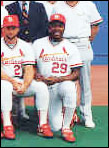 Vince Coleman wore uniform #29 playing with the St. Louis Cardinals
Vince Coleman wore uniform #29 playing with the St. Louis Cardinals(1985-1990) where he lead the NL in stolen bases for 6 consecutive years, breaking the rookie record with 110 stolen bases (1985). Only player with over 100 stolen bases in first 3 seasons. He had 29 RBIs (1986, 1995) and batted .290 with the Seattle Mariners (1995). The 2006 movie 29 Reasons to Run written by Gary Weeks has 29 in the title because Coleman #29 was his favorite baseball player. Photo at left: St. Louis Cardinals 1988 Yearbook. (Baseball Statistics; Stolen Bases Cover, Aug. 1, 1985) | |||
| 123) |

Jack Lummus wore uniform #29 as an end on offense & defense for the football New York Giants in 1941. He was killed on March 8, 1945 by a land mine after capturing a Japanese outpost on Io Jima, and received the Medal of Honor, the highest award for valor. ( New York Times, Feb. 19, 2005) | |||
| 124) |
NFL Super Bowl XXIX (1995):
San Francisco 49ers defeats San Diego Chargers 49-26 at Joe Robbie Stadium, Miami, Florida January 29, 1995; Attendance: 74,107 World Almanac & Book of Facts 2005, p. 921 | |||
| 125) |
29 Touchdowns in a season thrown by NFL Passing Leaders: 1962 Len Dawson, Kansas City Chiefs, 189/310, 2759 yards, 29 TD 1981 Ken Anderson, Cincinnati Bengals, 300/479, 3754 yards, 29 TD 1998 Vinny Testaverde, New York Jets, 259/421, 3256 yards, 29 TD 1993 Steve Young, San Francisco 49ers, 314/462, 4023 yards, 29 TD 2003 Peyton Manning, Indianapolis Colts, 379/566, 4267 yards, 29 TD World Almanac & Book of Facts 2005, pp. 921-923 | |||
| 126) |
NFL Super Bowl XXXVIII—
New England Patriots defeats Carolina Panthers 32-29 (February 1, 2004, at Reliant Stadium, Houston, Texas)— Carolina quarterback Jake Delhomme throws a 12-yard TD pass to Ricky Proehl to tie the score at 29-29 with 1:08 minute left. With 14 seconds remaining, New England's Tom Brady fired a 17-yard pass to Deion Branch to set up Adam Vinatieri's winning 41-yard field goal. New England had 29 first downs in the game. Tom Brady won his 2nd Super Bowl MVP. World Almanac & Book of Facts 2005, p. 920 | |||
| 127) |
Tom Landry
is the NFL's third-winningest coach of all time, compiling a 270-178-6 record in 29 seasons with the Dallas Cowboys. Had an NFL-record 20 consecutive winning seasons between 1966 and 1985. Led Dallas to victory in Super Bowl VI (1972) & Super Bowl XII (1978) Inducted to Pro Football Hall of Fame in 1990. | |||
| 128) |
Kevin Porter has the 2nd most assists in a NBA game with 29 (1st: Scott Skiles 30, 3rd: Bob Cousy, Guy Rodgers, John Stockton 28) The Official NBA Encyclopedia, 3rd Ed. (2000), p. 862 | |||
| 129) |
Most consecutive games, fewer than 100 points in a NBA season is 29 by the Orlando Magic from December 13, 1997 to February 16, 1998 and the Chicago Bulls from November 3, 1999 to January 5, 2000. The Official NBA Encyclopedia, 3rd Ed. (2000), p. 864 | |||
| 130) |
Most three-point field goals by both teams in a NBA game is 29 by the Denver Nuggets (16) & Seattle SuperSonics (13) at Seattle on March 20, 1997. The Official NBA Encyclopedia, 3rd Ed. (2000), p. 865 | |||
| 131) |
Most points scored in
one quarter in NBA Playoffs is 29 by Sleepy Floyd, Golden State Warriors vs. L.A. Lakers, May 10, 1987 The Official NBA Encyclopedia, 3rd Ed. (2000), p. 868 | |||
| 132) |
Most turnovers in a 5-game NBA Playoff Series is 29 by Larry Bird, Boston Celtics vs. Milwaukee Bucks, 1984 The Official NBA Encyclopedia, 3rd Ed. (2000), p. 871 | |||
| 133) |
Second place for most block shots in a NBA Finals is 29 5-game series: San Antonio Spurs vs. New York Knicks (1999). (1st: 39 by Seattle SuperSonics vs. Washington Bullets (1979). The Official NBA Encyclopedia, 3rd Ed. (2000), p. 880 | |||
| 134) |
29th Wimbledon Mens Tennis: Laurie Doherty beats Norman Brookes (8-6, 6-2, 6-4) in 1905. | |||
| 135) |
29th Wimbledon Womens Tennis: E. Thomson Larcombe beats Charlotte Cooper Sterry (6-3, 6-1) in 1912. | |||
| 136) |
29th Kentucky Derby
was won by Judge Himes
in 2:09 with Jockey Hal Booker aboard (May 2, 1903). | |||
| 137) |
29th Preakness Stakes
was won by Bryn Mawr in 1:44.2 with Jockey Eugene Hildebrand aboard (May 28, 1904). | |||
| 138) |
29th Belmont Stakes
was won by Belmar in 2:11 with Jockey Fred Taral aboard (November 2, 1895). | |||
| 139) |
29th U.S. Golf Open:
Willie Macfarlane shoots a 291 at Worcester Country Club, Massachusetts (June 5, 1925) | |||
| 140) |
Olympics Gold in Men's 10,000-Meter Run: 1948 Emil Zatopek, Czechoslovakia, 29m, 59.6s 1952 Emil Zatopek, Czechoslovakia, 29m, 17.0s 1968 Naftali Temu, Kenya, 29m, 27.4s World Almanac & Book of Facts 2005, p. 864 | |||
| 141) |
Olympics Gold in Men's Long Jump: 1968 Bob Beamon, USA, 29 ft 2.5 in. World Almanac & Book of Facts 2005, p. 866 | |||
| 142) |
The Men's Long Jump record 29 feet 2.5 inches set by
Bob Beamon at the 1968 Olympics in Mexico City stood for 23 years until it was broken on Aug. 30, 1991 when American Mike Powell jumped 29 feet 4.5 inches at the World Championships in Tokyo. World Almanac & Book of Facts 2005, p. 878 | |||
| 143) |
World record in Women's 10,000 meters Running: Wang Junxia, China, 29 min. 31.78 sec. (Sept. 8, 1993, Beijing, China) World Almanac & Book of Facts 2005, p. 879 | |||
| 144) |
Most All-Ireland final victories in Hurling: Cork has won 29 championships between 1890 and 2004 Craig Glenday (Ed.), Guinness World Records 2006, 2005, p. 222 | |||
| 145) |
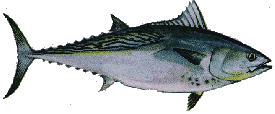 The world's saltwater fishing record for Kawakawa (Euthynnus affinis) is 29 pounds caught by Ronald Nakamura on Dec. 17, 1986 at Clarion Island, Mexico. World Almanac & Book of Facts 2005, p. 970 | |||
| 146) |
Germany won the most medal with 29 at the 2006 Winter Olympics in Turin, Italy (11 Gold, 12 Silver, 6 Bronze). United States was 2nd with 25 medals (9, 9, 7) Canada was 3rd with 24 medals (7, 10, 7). Austria was 4th with 23 medals (9, 7, 7) Medal Standings | |||
| 147) |
 There were 29 skaters in the Winter Olympic women's
There were 29 skaters in the Winter Olympic women'sfigure skating short program at Turin, Italy (Feb. 21, 2006) The last & 29th skater, Sasha Cohen (USA) was first with 66.73 points edging out Russia's Irina Slutskaya who had 66.70 points. They both fell on the ice in the long program two days later and lost the gold medal to Japan's Shizuka Arakawa. Cohen won the silver & Slutskaya the bronze. New York Times, February 22, 2006 | |||
| 148) |
8 Workers from Nebraska Win Record U.S. Lottery Jackpot, $365 Million (Feb. 18, 2006) (Winning numbers: 15, 17, 43, 44 and 48, with a Powerball number of 29. The odds of picking the winning combination of numbers: 1 in 146 million.) New York Times, Feb. 23, 2006 | |||
|
29 in Postage Stamps, Coins, & Collectibles
| ||||
| 149) |
United States Postal Rate: 29 cents for First Class Mail from February 3, 1991 to December 31, 1994 32 cents rate: January 1, 1995 to January 9, 1999 33 cents rate: January 10, 1999 to January 6, 2001 34 cents rate: January 7, 2001 to June 29, 2002 37 cents rate: June 30, 2002 to January 7, 2006 39 cents rate: January 8, 2006 to present | |||
| 150) | Postage Stamps with Denominations of 29 (Scott Catalogue # cited) | |||
| 151) | Postage Stamps with Scott Catalogue #29: | |||
| 152) |
There are 200 cards in
Wings: Friend or Foe Card #29 is "P2V Neptune", U.S. Navy Patrol Bomber (Topps 1952)
| |||
| 153) |
There are 160 cards in
World on Wheels (Topps 1953) Card #29 is "Simplex Speed Car 1910"
| |||
| 154) |
Card #29
of Flags of the World: Israel (Topps 1956)
| |||
| 155) |
There are 64 cards in
Firefighters (Bowman, 1952) Card #29 is "1911 Self-Propelled Steam Engine"
| |||
| 156) |
There are 48 cards in
3-D Antique Autos (Bowman, 1953).
Card #29 is "Hudson" | |||
|
29 in Books & Quotes
| ||||
| 157) |
Nine-and-twenty knights of fame Hung their shields in Branksome-Hall, Nine-and-twenty squires of name Brought them their steeds to bower from stall; Nine-and-twenty yeomen tall Waited, duteous, on them all; They were all knights of mettle true, Kinsmen to the bold Buccleuch. Sir Walter Scott (1771-1832), The Lay of the Last Minstrel, Canto I, Stanza 3 (1805) | |||
| 158) |
The summer dawn is breaking On Auburn's tangled bowers, The golden light is waking On Harvard's ancient towers; The sun is in the sky That must see us do or die, Ere it shine on the line Of the CLASS OF '29. Oliver Wendell Holmes (1809-1894), A Song of Twenty-Nine, Stanza 1 of 11 (1851) | |||
| 159) |
"I have never admitted that I am more than twenty-nine, or thirty at the most. Twenty-nine when there are pink shades, thirty when there are not." Oscar Wilde (1854-1900), Lady Windermere's Fan (1892), Act IV Bartlett's Familiar Quotations, 17th Edition, Justin Kaplan (Ed.) Little, Brown, & Co., Boston, 2002, p. 604 | |||
| 160) |
When you come to write my epitaph, Charles, let it be in these delicious words, " She had a long twenty-nine." Sir James Barrie (1860-1937), Rosalind (1912) | |||
| 161) |
"I Know the Twentynine Names of Attraente" James Joyce (1882-1941), Finnegans Wake, 105.25 | |||
| 162) |
There are 29 letters in floccinaucinihilipilification— the "longest real word" in the English language according to The Guinness Book of Records (1992) and subsequent editions. Definition: "The action or habit of estimating as worthless." Its first usage was in 1741 by William Shenstone, Letters XXII. Also by Robert Southey, Q. Review XIV. 334 (1816), and Walter Scott Journal 18 March 1829. It is the longest non-technical word in the first edition of the Oxford English Dictionary (1884-1928). | |||
| 163) |
 Twentynine Palms:
Twentynine Palms:a true story of murder, Marines, and the Mojave by Deanne Stillman, William Morrow, NY, 2001, 277 pp. Tells the 1991 murder of two local teenage girls by a troubled marine in a town housing the largest marine base in the world. | |||
| 164) |
 Twenty-Nine: A Novel
Twenty-Nine: A Novelby Karen Glooch Writers Club Press, 2001, 201 pp. With humor, honesty and a refreshing lack of self-pity, Twenty-Nine delivers an insightful examination of alcohol abuse and self-discovery, and a story of hope and resilience. | |||
| 165) |
The Dolphin Smile: twenty-nine centuries of dolphin lore by Eleanore Devine & Martha Clark, Macmillan, NY, 1967, 370 pp. (River dolphins) | |||
| 166) |
1929: the year of the great crash by William K. Klingaman was published by Harper & Row, New York, 1989, 393 pp. | |||
| 167) |
Nebula awards 29: SFWA's choices for the best science fiction and fantasy of the year Edited by Pamela Sargent, Harcourt Brace & Co., San Diego, CA, 1995, 307 pp. | |||
| 168) |
Twenty-nine Hills by Marty Basch is about mountain biking Top of the World Communications, 2005, 154 pp. | |||
| 169) |
Bollingen Series XXIX is
The Art of Letters: Lu Chi's "Wen Fu", A.D. 302 Translated & Edited by E. R. Hughes Princeton University Press, Princeton, New Jersey, 1951, 262 pp. Lu Chi (261-303 AD) | |||
| 170) |
.jpg) Volume 29 of
Time Magazine
(1st issue: March 3, 1923)
Volume 29 of
Time Magazine
(1st issue: March 3, 1923)runs from January 4, 1937, XXIX, No. 1 (Cover: Wallis Warfield Simpson, Woman of the Year) to June 28, 1937, XXIX, No. 26 (Cover: Ethel DuPont & Franklin Roosevelt Jr.) The Nizam of Hyderabad on Time cover, Vol. XXIX, No. 8 (Feb. 22, 1937) King George VI on Time cover, Vol. XXIX, No. 10 (March 8, 1937) Virginia Woolf on Time cover, Vol. XXIX, No. 15 (April 12, 1937) Bob Feller on Time cover, Vol. XXIX, No. 16 (April 19, 1937) | |||
| 171) |
.gif) Volume 29 of
Life Magazine
(1st issue: Nov. 23, 1936)
Volume 29 of
Life Magazine
(1st issue: Nov. 23, 1936)runs from June 5, 1950, XXIX, No. 1 (Cover: Actress Stasia Kos) to Dec. 25, 1950, XXIX, No. 26 (Cover: Child's Christmas) Hopalong Cassidy on Life cover, Vol. XXIX, No. 2 (June 12, 1950) Actress Cecile Aubry on Life cover, Vol. XXIX, No. 4 (June 26, 1950) Jean Simmons on Life cover, Vol. XXIX, No. 15 (Oct. 9, 1950) George C. Marshall on Life cover, Vol. XXIX, No. 25 (Dec. 18, 1950) (In Volume XXIX Jean Simmons Cover Issue— The Universe: Finite or Infinite?) | |||
| 172) |
Volume 29 of the
Dictionary of Literary Biography is titled "American Newspaper Journalists, 1926-1950" Edited by Perry J. Ashley, Gale Research, Detroit, 1984 The 54 entries include: Willis J. Abbot, Franklin P. Adams, Harry Chandler, Dorothy Day, Frank E. Gannett, Arthur Krock, Max Lerner, Walter Lippmann, Anne O'Hare McCormick, H.L. Mencken, Joseph Pulitzer, Jr., Ernie Pyle, Red Smith, Dorothy Thompson and Walter Winchell. | |||
| 173) |
Volume 29 of
Shakespearean Criticism contains excerpts from the criticism of William Shakespeare's Plays and Poetry, from the first published appraisals to current evaluations. This volume includes the following themes and dramas: Magic and the Supernatural (Renaissance & Occult Thought Witches, Ghosts, and Fairies, Staging the Supernatural), Macbeth, A Midsummer Night's Dream, and The Tempest. Shakespearean Criticism, Vol. 29, Michael Magoulias (Ed.), Gale Research Inc., Detroit, Michigan, 1996. | |||
| 174) |
Volume 29 of
Classical and Medieval Literature Criticism covers the following writers: Saint Benedict (Italian saint & theologian), Hroswitha of Gandersheim (German dramatist, poet, & historian), Kokinshu (Japanese poetry), and Tertullian (Roman theologian & apologist). Jelena O. Krstovic (Ed.), Gale Research, Farmington Hills, MI, 1999 | |||
| 175) |
Volume 29 of
Literary Criticism from 1400 to 1800 covers the following topics: Robert Burns, 18th-Century Scottish Poetry, Robert Fergusson, James Macpherson, Allan Ramsay, and James Thomson Jennifer Allison Brostrom (Ed.), Gale Research Inc., Detroit, MI, 1996 | |||
| 176) |
Volume 29 of
Nineteenth-Century Literary Criticism covers criticism of the works of writers who died between 1800 & 1899. The nine writers in this volume are Matthew Arnold, Charles Baudelaire, Toru Dutt, William Hazlitt, Felicia Hemans, Charles-Marie-René Leconte de Lisle, Alessandro Manzoni, Herman Melville, and Lady Morgan. Laurie DiMauro (Ed.), Gale Research Inc., Detroit, MI, 1991 | |||
| 177) |
Volume 29 of
Twentieth-Century Literary Criticism covers 14 writers including: Leopoldo Alas, Joyce Cary, Bernard DeVoto, Franz Kafka, Luigi Pirandello, Henrik Pontoppidan, and Thomas Wolfe. Dennis Poupard (Ed.), Gale Research Co., Detroit, MI, 1988 | |||
| 178) |
Volume 29 of
Contemporary Literary Criticism covers 54 writers including: Georges Bataille, Samuel Beckett, Noël Coward, Isak Dinesen, Leon Edel, Peter Gent, Ruth Prawer Jhabvala, Jack Kerouac, Galway Kinnell, Phillip Lopate, James A. Michener, Charles Olson, Michael Ondaatje, Judith Rossner, William Saroyan, William Stafford, Tom Stoppard, Philip Whalen, and Christa Wolf. Jean C. Stine & Daniel G. Marowski (Eds.), Gale Research Co., Detroit, 1984 | |||
|
29 in Art, Music, Film
| ||||
| 179) |
 The Chiyo Promentory at Meguro in the Eastern Capital
The Chiyo Promentory at Meguro in the Eastern Capitalis View 29 in 36 Views of Mount Fuji (1852), a set of woodblock prints by Utagawa Hiroshige (1797-1858). | |||
| 180) |
 Shiojiri Pass in Shinano Province
Shiojiri Pass in Shinano Provinceshowing three travellers with Mt. Fuji and lake in the background is View 29 in 36 Views of Mount Fuji (1858), a second set of woodblock prints by Utagawa Hiroshige (1797-1858). | |||
| 181) |
 Station 29: Mitsuke is one of the
53 Stations of the Tokaido,
Station 29: Mitsuke is one of the
53 Stations of the Tokaido,a set of woodblock prints by Utagawa Hiroshige (1797-1858). The original prints were completed in 1834, but Hiroshige returned to the subject again and again. There are actually 55 prints in the series. It includes not only the 53 way stations on the road from Tokyo to Kyoto, but also the starting point at the Nihon-bashi (Japan bridge) in central Tokyo, and the ending at Kyoto. (Map of 53 Stations) | |||
| 182) |
 Woodblock Print 29
Woodblock Print 29of 100 Views of Edo (1856-1858) by Japanese painter & printmaker Ando Hiroshige (1797-1858) is titled "The Original Hachiman Shrine at Suna Village" showing two people near a Torii with sailboats in the distant lake. | |||
| 183) |
Jackson Pollock's most productive years as a painter occurred precisely between the beginning of 1944 immediately after Mural for the lobby of Peggy Guggenheim's townhouse at 155 East 61st Street in New York City and October 1950 when he completed the picture Number 29, 1950, painted on glass and made for the demonstration of his technique in the film, Jackson Pollock, directed by Hans Namuth and completed in 1951. About the abstract painting called Mural, Pollock said: "I had a vision... It was a stampede." [Catherine M. Soussloff, "Jackson Pollack's Post-Ritual Performance: Memories Arrested in Space", The Drama Review Vol. 48, 1 (Spring 2004)] | |||
| 184) |
Painting 29 by
Quentin Smith is also titled "He Resigned from the World and then He Resigned from Himself" (Dec. 2002) | |||
| 185) |
Krishna Print #29 shows "Sri Sri Radharani and Krishna walking in the evening." from the Krishna Darshan Art Gallery featuring 122 paintings of Lord Krishna. | |||
| 186) |
Johann Sebastian Bach's
Church Cantata #29 was written for the inauguration of town council, Aug. 27, 1731 (Wir danken dir, Gott, wir danken dir) [New Grove Dictionary of Music & Musicians, Vol. 1 (1980), p. 819] | |||
| 187) |
Joseph Haydn's
Symphony #29 in E Major (1765), 2 oboes, 2 horns, & strings [New Grove Dictionary of Music & Musicians, Vol. 8 (1980), p. 371] | |||
| 188) |
George Frideric Handel's
Messiah XXIX is the Chorus "Thy rebuke hath broken His heart" (1741) Recording: Leonard Bernstein, New York Philharmonic & Westminster Choir | |||
| 189) |
Wolfgang Amadeus Mozart's
Symphony #29 in A Major, K201 (Salzburg, April 6, 1774) 2 oboes, 2 horns, and strings (22 minutes; 4 movements: allegro moderato, andante, menuetto, allegro con spirito) [New Grove Dictionary of Music & Musicians, Vol. 12 (1980), p. 736] | |||
| 190) |
Beethoven's
Opus #29 is String Quintet in C major (1801). It was dedicated to Count Fries & published in Leipzig (1802). [New Grove Dictionary of Music & Musicians, Vol. 2 (1980), p. 396] | |||
| 191) |
Beethoven's
Piano Sonata #29 in B flat major "Hammerklavier" (1818) was dedicated to Archduke Rudolph and published in Vienna & London (1819) [New Grove Dictionary of Music & Musicians, Vol. 2 (1980), p. 399] | |||
| 192) |
Franz Schubert's
D29 is Andante in C for Piano arrangement of String Quartet #3 (composed Sept. 9, 1812; Published 1888) [New Grove Dictionary of Music & Musicians, Vol. 16 (1980), p. 785] | |||
| 193) |
Felix Mendelssohn's Opus #29
is Orchestral Rondo brillant in E flat Major, Performed on January 29, 1834 (Sheet Music) [New Grove Dictionary of Music & Musicians, Vol. 12 (1980), p. 153] | |||
| 194) |
Frederic Chopin's
Opus #29 is Piano Solo "Impromptuin A flat Major" (Paris, 1837) [New Grove Dictionary of Music & Musicians, Vol. 4 (1980), p. 307] | |||
| 195) |
Robert Schumann's
Opus #29 is "Drei Gedichte"— Vocal quartets with piano (composed 1840) 1. Ländliches Lied, 2. Lied, 3. Zigeunerleben [New Grove Dictionary of Music & Musicians, Vol. 16 (1980), p. 858-859] | |||
| 196) |
Johannes Brahms'
Opus #29
is "Two Motets" (5 voices, unaccompanied choral works) (composed 1860, published 1864) Es ist das Heil uns kommen her & Schlafe in mir, Gott (Psalms LI) Performed: Vienna, April 17, 1864 [New Grove Dictionary of Music & Musicians, Vol. 3 (1980), p. 179] MP3 Recording: Masaru Suzuki (27 September 2003 at Tsukuba Ars Hall) | |||
| 197) |
Jean Sibelius's
Opus #29 is Choral: Snöfrid (Rydberg) improvisation, reciter, male voices, orchestral (composed 1900) [New Grove Dictionary of Music & Musicians, Vol. 17 (1980), p. 287] | |||
| 198) |
Pyotr Il'yich Tchaikovsky's
Opus #29 is Symphony #3 in D Major ("Polish") (June 17-Aug. 13, 1875) First Performance: Moscow, Nov. 19, 1875; Published: 1877 [New Grove Dictionary of Music & Musicians, Vol. 18 (1980), p. 630] | |||
| 199) |
Sergei Prokofiev's
Opus #29 is Piano Sonata #4 in C minor (from old notebooks) (1917), (After Sonata #5, 1908, and Symphony 1908) Opus #29B is Andante from Piano Sonata #4 for symphonic orchestra (1934) [New Grove Dictionary of Music & Musicians, Vol. 15 (1980), pp. 299-300] | |||
| 200) |
Sergei Rachmaninoff's
Opus #29 is Ostrov myortvïkh [Isle of the Dead], symphonic poem after Böcklin (1909) [New Grove Dictionary of Music & Musicians, Vol. 15 (1980), p. 557] | |||
| 201) |
Maurice Ravel's
Opus #29 is Myrrha, Cantata, 3 voices (soprano, tenor, baritone) with orchestra. Text: Fernand Beissier, after final scene of Lord Byron's "Sardanapale" (1901) [New Grove Dictionary of Music & Musicians, Vol. 15 (1980), p. 620] | |||
| 202) |
Billboard's "The Top 100" pop record singles for 29 weeks: Nelson Riddle, Lison Antigua (#2: 11-232-1955), Capitol 3287 Bill Doggett, Honky Tonk (#2: 8-8-1956), King 4950 Perry Como, Round and Round (#1: 2-13-1957), RCA 6815 Bing Crosby, Around the World (#54: 6-12-1957), Decca 30262 Jerry Lee Lewis, Whole Lot of Shakin' Going On (#3: 6-19-1957), Sun 267 Paul Anka, Diana (#2: 7-6-1957), ABC 9831 Jane Morgan, Fascination (#11: 8-17-1957), Kapp 191 Mitch Miller, March from the River Kwai (#21: 1-4-1958), Columbia 41066 Joel Whitburn, Top Pop Records: 1955-1970 Gale Research Co., Detroit, MI, 1972 | |||
| 203) |
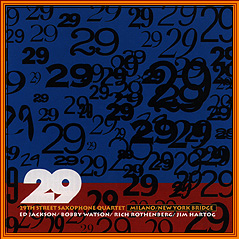 29th Street Saxophone Quartet
29th Street Saxophone Quartetfirst came together for a European tour in 1983. The band is composed of Jim Hartog (baritone saxophone), Ed Jackson (alto saxophone), Rich Rothenburg (tenor saxophone), Bobby Watson (alto saxophone). Hartog & Jackson jammed with other N.Y. saxophonists both in and outside Jim Hartog's 29th Street loft apartments. All four are outstanding soloists, but their records are also characterized by "a state of integrated motion", the horns threading together in quick-fire counterpoint or complex rhythmic interweavings. Their albums include Pointillistic Groove (1984), Watch Your Step (1985), The Real Deal (1989), Underground (1991), Your Move (1992), and Milano/New York Bridge (1994) Colin Larkin (ed.), Encyclopedia of Popular Music 3rd Edition, Volume 7, Muze UK Ltd., New York, 1998, p. 5543 | |||
| 204) |
Track 29 appears in the first stanza of
Chattanooga Choo-Choo in the 1941 song by Mack Gordon with music by Harry Warren (Lyrics & Chords) "Chattanooga Choo-Choo" Pardon me boy, is that the Chattanooga Choo-Choo Yes, yes, track twenty-nine, boy you can give me a shine Can you afford to board the Chattanooga Choo-Choo I got my fare, and just a trifle to spare You leave the Pennsylvania Station 'bout a quarter to four Read a magazine and then you're in Baltimore Dinner in the diner, nothing could be finer Than to have your ham and eggs in Carolina When you hear the whistle blowing eight to the bar Then you know that Tennessee is not very far Shovel all your coal in, gotta keep a-rollin' Whoo whoo, Chattanooga, there you are or some kind of neighborhood There's gonna be a certain party at the station Satin and lace, I used to call funny-face She's gonna cry until I tell her that I'll never roam So, Chattanooga Choo-Choo, won't you choo-choo me home Chattanooga, Chattanooga, get aboard Chattanooga, Chattanooga, all aboard Chattanooga, Chattanooga Chattanooga Choo-Choo, won't you choo-choo me home Chattanooga Choo-Choo | |||
| 205) |
On 29th street appears in a song
"Something
to Brag About" by Tammy Wynette and George Jones from the album 16 Biggest Hits: So let's get married In the not-to-distant future We'll rent a little flat On 29th street Complete Lyrics) | |||
| 206) |
Highway 29
is a song by Bruce Springsteen: The winter sun, shot through the black trees I told myself it was all something in her But as we drove I knew it was something in me Something had been comin' for a long long time And something that was here with me now On highway 29 (Complete Lyrics) | |||
| 207) |
29 Acacia Avenue
(1945) is a Columbia Pictures film directed by Henry Cass. Produced from the 3-act play Acacia Avenue by Mabel & Denis Constanduros. The plot of the comedy film: A group of young people are having a good time, when their parents return home unexpectedly from holiday. Richard Bertrand Dimmitt, A Title Guide to the Talkies, The Scarecrow Press, New York, 1965, p. 1837. | |||
| 208) |
 Track 29 is a 90-minutes color film (1988)
Track 29 is a 90-minutes color film (1988)Directed by Nicolas Roeg; Screenplay: Dennis Potter Plot: A doctor's wife tires of his obsession with model trains, and spends her days wondering about the son she gave up for adoption at birth. Cast: Theresa Russell, Gary Oldman, Christopher Lloyd, Sandra Bernhard. Theresa Russell won the Best Actress Award at Mystfest (1988). Review | |||
| 209) |
 29th Street is a 101-minutes color film (1991) directed by George Gallo.
29th Street is a 101-minutes color film (1991) directed by George Gallo.Cast: Danny Aiello, Anthony LaPaglia, Lainie Kazan, Frank Pesce, Donna Magnani, Rick Aiello, Vick Manni. Richly seasoned look at NYC Italian-Americans through the eyes of Frank Pesce, who sees his life as blessed with luck, even though it presents itself in strange ways. The story is told in flashback on the night of NY State's first lottery drawing. Aiello and LaPaglia are dynamite as father & son, and that's the real Frank Pesce as older brother Vito. He also co-wrote the story, based on his life. Directing debut for George Gallo who was the screenwriter for the film Midnight Run. — Leonard Maltin (Ed.), Movie & Video Guide (2002), Signet Book, New York, 2001, p. 1451 (Review) | |||
| 210) |
 29 Palms is a 93-minutes color film (2002)
29 Palms is a 93-minutes color film (2002)Directed by Leonardo Ricagni; Screenplay by Tino Lucente. Cast: Jeremy Davies, Michael Lerner, Litefoot, Russell Means, Chris O'Donnell Plot: This is the story of a bag of money and the people who come into contact with it. (Review) | |||
| 211) |
 29 Reasons to Run is a 99-minutes color film (2006)
29 Reasons to Run is a 99-minutes color film (2006)Directed by Damon O'Steen; Screenplay by Gary Weeks. Cast: Gary Weeks, Branden Waits, Philip Boyd, Adam Kendrick. Plot: Murphy's Law takes over when a slacker (Jack Paradise) runs out of couches to sleep on and decides to take a road trip to find his lost love. The number "29" in the title refers to the writer's favorite Baseball player, former Major League speedster Vince Coleman; #29 was also the number that Weeks wore during his high school baseball playing days, for the same reason. | |||
| 212) |
29th Motion Picture Academy Awards (Oscars) in 1956: Best Picture: Around the World in 80 Days, Warner Brothers Best Director: George Stevens, Giant Best Actor: Yul Brynner, The King and I Best Actress: Ingrid Bergman, Anastasia Supporting Actor: Anthony Quinn, Lust for Life Supporting Actress: Dorothy Malone, Written on the Wind The World Almanac and Book of Facts (2005), p. 328 | |||
|
29th Ranking in Lists
| ||||
| 213) |
98.5WNCX, Cleveland's Classic Rock radio station
has ranked the Top 98 LP albums Who's Tommy (1969) was selected as the 29th Greatest LP. (#1. Pink Floyd, "Dark Side of the Moon", #2. "Led Zepplin 4", #3. Beatles, "White Album") | |||
| 214) |
Billboard's
Top 100 Rock and Roll Songs of the Fifties has ranked the Top 100 Songs Les Baxter's "Theme from Helen of Troy" (1956) was selected as the 29th Greatest Song. (#1. Elvis Presley, "Don't Be Cruel", #2. Bill Haley and His Comets, "Rock around the Clock", #3. Roger Williams, "Autumn Leaves") | |||
| 215) |
Rolling Stone Magazine's poll of the 500 Greatest Songs of All Time has named The Beatles' Help! (1965) as the 29th Greatest Song. (#1. Bob Dylan "Like a Rolling Stone", #2. Rolling Stones "Satisfaction", #3. John Lennon "Imagine") | |||
| 216) |
Frank Capra's Mr. Smith Goes to Washington (1939) was selected as the 29th best film in AFI's 100 Years... 100 Movies (1998). Plot: A naive man is appointed to fill a vacancy in the US Senate. His plans promptly collide with political corruption, but he doesn't back down. The film starred James Stewart, Jean Arthur, Claude Rains, and Harry Carey. Lewis R. Foster won an Oscar for Best Writing, Original Story (1940). | |||
| 217) |
An Officer and a Gentleman (1982)
was selected as the 29th best love stories film in AFI's 100 Years... 100 Passions (2002). Directed by Taylor Hackford, the film starred Richard Gere and Debra Winger. | |||
| 218) |
The Shining (1980)
was selected as the 29th best thriller film in AFI's 100 Years... 100 Thrills (2001). Based on a Stephen King novel, the film was directed by Stanley Kubrick. The film starred Jack Nicholson, Shelley Duvall, and Danny Lloyd. | |||
| 219) |
This Is Spinal Tap (1984)
was selected as the 29th funniest film in AFI's 100 Years... 100 Laughs (2000). Directed by Rob Reiner, the film starred Rob Reiner, Kimberly Stringer, & Chazz Dominguez. | |||
| 220) |
"Born to Be Wild" from the film
Easy Rider (1969) was selected as the 29th best song in AFI 100 Years... 100 Songs (2004). Directed by Dennis Hopper; Music & Lyrics: Mars Bonfire; Performer: Steppenwolf The film starred Peter Fonda, Dennis Hopper, and Jack Nicholson. | |||
| 221) |
"You can't handle the truth!" from the film
A Few Good Men (1992) was selected as the 29th greatest movie quotes in AFI's 100 Years... 100 Movie Quotes (2005). Directed by Rob Reiner, the film starred Tom Cruise, Jack Nicholson, Demi Moore, & Kevin Bacon. | |||
| 222) |
In the KDFC 2006 Top #100 Classical All-Star Music Poll, Mozart's Magic Flute was selected as the 29th musical piece (Aired January, 2006) (Musical Piece #28: Copland, Appalachian Spring; #30: Mahler, Adagietto) (Top pieces: Beethoven's Symphony #9, Rachmaninoff's Piano Concerto #2, Beethoven's Symphony #6 Pastoral; Top composers: Beethoven, Mozart, Bach; Top performers: Yo Yo Ma, Itzhak Perlman, James Galway) | |||
| 223) |
In the book Sporting News Selects
Baseball's 100 Greatest Players (1998), Napoleon Lajoie, of the Philadelphia Phillies & Athletics and Cleveland Indians was ranked the 29th best baseball player of all time. He won the 1st triple crown, with the highest record .426 batting average (1901). (#1 Babe Ruth; #2 Willie Mays; #3 Ty Cobb; #4 Walter Johnson) | |||
| 224) |
In the book Sporting News Selects
Football's 100 Greatest Players (1999), Roger Staubach of the Dallas Cowboys was ranked the 29th best football player of all time. (#1 Jim Brown; #2 Jerry Rice; #3 Joe Montana; #4 Lawrence Taylor) | |||
| 225) |
In the book
1,000 Years, 1,000 People: Ranking the Men and Women Who Shaped the Millennium by Agnes Hooper Gottlieb, Henry Gottlieb, Barbar Bowers, Brent Bowers (1998), William the Conqueror was ranked the 29th most influential person of the millennium 1001-2000. (#1 Johannes Gutenberg; #2 Columbus; #3 Martin Luther; #4 Galileo) | |||
| 226) |
Ohio State University
was ranked as the 29th largest library (5,087,336 volumes) in a listing of "The 100 Largest Libraries in the United States" (1999). (#1 Library of Congress; #2 Harvard University; #3 New York Public Library; #4 Yale University) 2003 Listing: #29 Los Angeles Public Library (5,554,904 volumes) (#1 Library of Congress; #2 Harvard University; #3 Boston Public Library; #4 Chicago Public Library) | |||
| 227) |
In Martin Seymour-Smith's book
The 100 Most Influential Books Ever Written: The History of Thought from Ancient Times to Today (1998), Thomas Aquinas's Summa Theologiae (1266-1273) was listed as the 29th book in chronological order among the 100 most influential books in the history of thought. | |||
| 228) |
In Henry Miller's
The Books in My Life (1969) Feodor Dostoievsky's works was listed as the 29th book in author alphabetical order among the 100 most influential books that Henry Miller has read. | |||
| 229) |
In
The Internet Top 100 Science Fiction/Fantasy List (July 6, 2003) Lord of Light by Roger Zelazny was ranked as the 29th most popular book. (#1 George R. Martin, A Song of Ice and Fire; #2 J.R.R. Tolkien, Lord of the Rings; #3 Lois M. Bujold, The Vorkosigan Series) | |||
| 230) |
Chicago, USA was ranked as the 29th most populous city (6,945,000) in Top 100 Cities of the World— ranked by population. (#1 Tokyo, Japan; #2 Mexico City, Mexico; #3 Mumbai, India; #4 Sáo Paulo, Brazil) | |||
| 231) |
Spain was ranked as the 29th most populous country (39,208,236) in Top 100 Countries of the World— ranked by population. (#1 China; #2 India; #3 United States; #4 Indonesia; #5 Brazil) | |||
| 232) |
"By" was ranked as the 29th most used English word in The First 100 Most Commonly Used English Words from The Reading Teacher's Book of Lists (4th Ed., 2000) by Edward Bernard Fry, Jacqueline E. Kress, & Dona Lee Fountoukidis (#1 the, #2 of, #3 and, #4 a, #5 to, #6 in, #7 is, #8 you, #9 that, #10 it) In a survey of The 500 Most Commonly Used Words in English "by" was ranked as the 29th most commonly used English word. | |||
| 233) |
In The Modern Library 100 Best Novels (2003). Board's List 29th best novel: James T. Farrell's The Studs Lonigan Trilogy (#1 James Joyce, Ulysses; #2 F. Scott Fitzgerald, The Great Gatsby) Reader's List 29th best novel: Stephen King's The Stand (#1 Ayn Rand, Atlas Shrugged; #2 Ayn Rand, The Fountainhead) | |||
| 234) |
In The Modern Library 100 Best Nonfiction (2003). Board's List 29th best nonfiction: Ernest H. Gombrich's Art and Illusion (#1 Henry Adams, The Education of Henry Adams; #2 William James, Varieties of Religious Experience) Reader's List 29th best nonfiction: Frances Yates' The Art of Memory (#1 Ayn Rand, Virtue of Selfishness; #2 L. Ron Hubbard, Dianetics) | |||
| 235) |
29th best-loved novel is John Steinbeck's The Grapes Of Wrath in BBC's Big Read: Top 100 (April 2003). #28 John Irving's A Prayer for Owen Meany; #30 Lewis Carroll's Alice's Adventures In Wonderland (#1 JRR Tolkien, Lord of the Rings; #2 Jane Austen, Pride and Prejudice) | |||
| 236) |
29th most popular book downloaded is Emile Cammaerts' Through the Iron Bars in Project Gutenberg's Top 100 (2-12-2006). #28 A. M. Williamson & C. N. Williamson's Rosemary; #30 Charles Seignobos's History Of Ancient Civilization (#1 Sarah Knowles Bolton, Lives of Girls Who Became Famous; #2 Notebooks of Leonardo da Vinci; #3 Vatsyayana Kamasutra; #4 Unknown, The Illustrated Alphabet of Birds) | |||
| 237) |
The Fortune 500 is a ranking of the top 500 United States public corporations as measured by gross revenue. In 2005, the 29th Ranking was Costco Wholesale with revenue of $48,107 million (#28: Dell Corporation; #30: Johnson & Johnson) (#1 Wal-Mart Stores; #2 Exxon Mobil; #3 General Motors; #4 Ford Motors; #5 General Electric) | |||
| 238) |
Forbes Top 100 Celebrity Ranking (6-15-2005):
Power #29:
Shania Twain (#1 Oprah Winfrey, #2 Tiger Woods, #3 Mel Gibson) Pay #29: Tobey Maguire (#1 George Lucas, #2 Oprah Winfrey, #3 Mel Gibson) Web #29: Bette Midler (#1 Bill Clinton, #2 Oprah Winfrey, #3 George Lucas) | |||
| 239) |
South Korea was ranked as the 29th country favored by tourists with 2,959,000 visitors in Tourist Arrivals (#1 France; #2 United States; #3 Spain; #4 Italy; #5 Hungary) George Thomas Kurian, The Illustrated Book of World Rankings, Sharpe Reference, Armonk, NY, 1997, p. 211 | |||
| 240) |
Internet Movie Database was ranked as the 29th most popular web site in Web 100: Top 100 by web100.com (#1 CNET; #2 Shutterfly; #3 ESPN.com; #4 National Geographic Online) | |||
|
29 in the Bible
| ||||
| 241) |
29 occurs in the Bible 8 times: And Nahor lived nine and twenty years, and begat Terah: — Genesis, 11.24 (2247 B.C.) All the gold that was occupied for the work in all the work of the holy place, even the gold of the offering, was twenty and nine talents, and seven hundred and thirty shekels, after the shekel of the sanctuary. — Exodus, 38.24 (1491 B.C.) And Lebaoth, and Shilhim, and Ain, and Rimmon: all the cities are twenty and nine, with their villages: — Joshua, 15.32 (1444 B.C.) He [Amaziah] was twenty and five years old when he began to reign, and reigned twenty and nine years in Jerusalem. And his mother's name was Jehoaddan of Jerusalem. — II Kings, 14.2 (842 B.C.) Twenty and five years old was he when he began to reign; and he reigned twenty and nine years in Jerusalem. His mother's name also was Abi, the daughter of Zachariah. — II Kings, 18.2 (678 B.C.) Amaziah was twenty and five years old when he began to reign, and he reigned twenty and nine years in Jerusalem. And his mother's name was Jehoaddan of Jerusalem. — II. Chronicles, 25.1 (840 B.C.) Hezekiah began to reign when he was five and twenty years old, and he reigned nine and twenty years in Jerusalem. And his mother's name was Abijah, the daughter of Zechariah. — II. Chronicles, 29.1 (741 B.C.) And this is the number of them: thirty chargers of gold, a thousand chargers of silver, nine and twenty knives, — Ezra, 1.9 (536 B.C.) The Complete Concordance to the Bible (New King James Version) Thomas Nelson Publishers, Nashville, TN (1983), p. 1004 | |||
| 242) |
Chapter 29 in Genesis: Jacob comes to Haran, meets Rachel, deceived with Leah, works 7 more years for Rachel: 1. Then Jacob went on his journey, and came into the land of the people of the east. 2. And he looked, and behold a well in the field, and, lo, there were three flocks of sheep lying by it; for out of that well they watered the flocks: and a great stone was upon the well's mouth. 6. And they said, He is well: and, behold, Rachel his daughter cometh with the sheep. 11. And Jacob kissed Rachel, and lifted up his voice, and wept. 20. And Jacob served seven years for Rachel; and they seemed unto him but a few days, for the love he had to her. 25. And it came to pass, that in the morning, behold, it was Leah: and he said to Laban, What is this thou hast done unto me? did not I serve with thee for Rachel? wherefore then hast thou beguiled me?. 30. And he went in also unto Rachel, and he loved also Rachel more than Leah, and served with him yet seven other years. — Genesis, 29.1, 2, 6, 11, 20, 25, 30 (1760 B.C.) | |||
| 243) |
Verse 29 of Genesis Chapter 32 After wrestling with the Angel, Jacob was blessed by the Angel: And Jacob asked him, and said, Tell me, I pray thee, thy name. And he said, Wherefore is it that thou dost ask after my name? And he blessed him there.. — Genesis, 32.29 (1739 B.C.) | |||
| 244) |
There are 29 verses in Chapter 29 of
Deuteronomy, Moses asks his people to obey God's covenant: 1. These are the words of the covenant, which the LORD commanded Moses to make with the children of Israel in the land of Moab, beside the covenant which he made with them in Horeb. 2. And Moses called unto all Israel, and said unto them, Ye have seen all that the LORD did before your eyes in the land of Egypt unto Pharaoh, and unto all his servants, and unto all his land; 9. Keep therefore the words of this covenant, and do them, that ye may prosper in all that ye do. 15. But it shall come to pass, if thou wilt not hearken unto the voice of the Lord 29. The secret things belong unto the LORD our God: but those things which are revealed belong unto us and to our children for ever, that we may do all the words of this law. — Deuteronomy 29.1-2, 9, 29 (1451 B.C.) | |||
| 245) |
There are 29 chapters in I. Chronicles. In Chapter 29, David gives thanksgiving to the Lord: 10. Wherefore David blessed the LORD before all the congregation: and David said, Blessed be thou, LORD God of Israel our father, for ever and ever. 11. Thine, O LORD is the greatness, and the power, and the glory, and the victory, and the majesty: for all that is in the heaven and in the earth is thine; thine is the kingdom, O LORD, and thou art exalted as head above all. 13. Now therefore, our God, we thank thee, and praise thy glorious name. Blessed be thou, LORD God of Israel our father, for ever and ever. 18. O LORD God of Abraham, Isaac, and of Israel, our fathers, keep this for ever in the imagination of the thoughts of the heart of thy people, and prepare their heart unto thee: 27. And the time that he reigned over Israel was forty years; seven years reigned he in Hebron, and thirty and three years reigned he in Jerusalem. 28. And he died in a good old age, full of days, riches, and honour: and Solomon his son reigned in his stead. — I. Chronicles 29.10-11, 13, 18, 27-28 (1023 B.C.) | |||
| 246) |
Chapter 29 of Book of Job: Job bemoans himself when he remembers his former prosperity and honour. 2. Oh that I were as in months past, as in the days when God preserved me; 3. When his candle shined upon my head, and when by his light I walked through darkness; 5. When the Almighty was yet with me, when my children were about me; 15. I was eyes to the blind, and feet was I to the lame. 18. Then I said, I shall die in my nest, and I shall multiply my days as the sand. 19. My root was spread out by the waters, and the dew lay all night upon my branch. 23. And they waited for me as for the rain; and they opened their mouth wide as for the latter rain. — Book of Job 29.2-3, 5, 15, 18-19, 23 (1023 B.C.) | |||
| 247) |
In the 29th Psalm, David exhorts princes to give glory to God: 1. Give unto the LORD, O ye mighty, give unto the LORD glory and strength. 3. The voice of the LORD is upon the waters: the God of glory thundereth: the LORD is upon many waters. 4. The voice of the LORD is powerful; the voice of the LORD is full of majesty. 7. The voice of the LORD divideth the flames of fire. 8. The voice of the LORD shaketh the wilderness; the LORD shaketh the wilderness of Kadesh. 11. The LORD will give strength unto his people; the LORD will bless his people with peace. — Psalms 29.1, 3-4, 7-8, 11 (1023 B.C.) | |||
| 248) |
Verse 29 of Matthew Chapter 6: 28. And why take ye thought for raiment? Consider the lilies of the field, how they grow; they toil not, neither do they spin: 29. And yet I say unto you, That even Solomon in all his glory was not arrayed like one of these. — Matthew, 6.28-29 (31 A.D.) | |||
| 249) |
Verse 29 of Matthew Chapter 15: 29. And Jesus departed from thence, and came nigh unto the sea of Galilee; and went up into a mountain, and sat down there. — Matthew, 15.29 (31 A.D.) | |||
| 250) |
Verse 29 of Luke Chapter 13: 29. And they [prophets] shall come from the east, and from the west, and from the north, and from the south, and shall sit down in the kingdom of God. — Luke, 13.29 (31 A.D.) | |||
| 251) |
Verse 29 of Luke Chapter 21: 29. And he spake to them a parable; Behold the fig tree, and all the trees; — Luke, 21.29 (31 A.D.) | |||
| 252) |
Verse 29 of John Chapter 20: 29. Jesus saith unto him, Thomas, because thou hast seen me, thou hast believed: blessed are they that have not seen, and yet have believed. — John, 20.29 (31 A.D.) | |||
| 253) |
29th Book of Ecclesiasticus: On Loans, Generosity, Securities, Home & Hospitality—
Nevertheless, be patient with those who are badly-off, do not keep them waiting on your generosity. For the commandment's sake go to the poor man's help, do not turn him away empty-handed in his need. Better let your silver go on brother or friend, do not let it go to waste, rusting under a stone. Invest your treasure as the Most High orders, and you will find it more profitable than gold. Deposit generosity in your storerooms and it will release you from every misfortune. Better than sturdy shield or weighty spear, it will fight for you against the enemy. — Ecclesiasticus XXIX.11-17 (circa 280 B.C.) The Jerusalem Bible (Editor, Alexander Jones) Doubleday & Co., Garden City, NY, 1967, pp. 936-937 | |||
| 254) |
29th Book of Enoch describes Further Journey to the East:
And thence I went to another place in the desert, and approached to the east of this mountain range. And there I saw aromatic trees exhaling the fragrance of frankincense and myrrh, and the trees also were similar to the almond tree. — Book of Enoch XXIX.1-2 (circa 105 B.C.-64 B.C.) translated by R. H. Charles, S.P.C.K., London, 1917, p. 53 | |||
| 255) |
29th Saying of
Gospel of Thomas (circa 150 A.D.): Jesus said, "If the flesh came into being because of spirit, that is a marvel, but if spirit came into being because of the body, that is a marvel of marvels. Yet I marvel at how this great wealth has come to dwell in this poverty. Gospel of Thomas, Saying #29 (114 Sayings of Jesus) (trans. Marvin Meyer, 1992; adapted by Elaine Pagels, Beyond Belief, pp. 231-232) Nag Hammadi Library, Ed. James M. Robinson, trans. Thomas O. Lambdin, 1988, p. 130 | |||
| 256) |
29th Section of
The (First) Apocalypse of James (circa 150 A.D.): James said, "Rabbi, how, after these things, will you appear to us again? After they seize you, and you complete this destiny, you will go up to Him-who-is." The Lord said, "James, after these things I shall reveal to you everything, not for your sake alone but for the sake of the unbelief of men, so that faith may exist in them. For a multitude will attain to faith and they will increase." The (First) Apocalypse of James, Section #29 Nag Hammadi Library, Ed. James M. Robinson, translated by William R. Schoedel, 1988, p. 264 | |||
| 257) |
29th Section of
The Sentences of Sextus (circa 150 A.D.): Strive eagerly to be victorious over every man in prudence; maintain self-sufficiency. You cannot receive understanding unless you know first that you possess it. It is better to serve others than to make others serve you. The Sentences of Sextus, Section 29, Sentences #332-333, 336 Nag Hammadi Library, Ed. James M. Robinson, translated by Frederik Wisse 1988, pp. 505-506. | |||
| 258) |
Chapter 29 in the First Book of
Pistis Sophia (circa 150 A.D.): Now it happened after these things I came to the height to the veils of the thirteenth aeon. Now it happened that when I reached their veils, they drew themselves and they opened to me. I entered into the thirteenth aeon, I found the Pistis Sophia below the thirteenth aeon alone, none of them being with her. But she dwelt in that place, sorrow and grieving because she had not been taken to the thirteenth aeon, her place in the height. And furthermore she was sorrowful on account of the torments which the Authades inflicted on her, he being one of the three triple- powered ones. But when I tell you about their extent, I will tell you the mystery of how these things happened. Now it happened, when the Pistis Sophia saw me shining exceedingly, there being no measure to the light which I had, she was in great agitation and she looked at the light of my garment. She saw the mystery of her name in my garment and the whole glory of its mystery because she was previously in the place of the height in the thirteenth aeon. But she was wont to sing praises to the light in the height which she saw in the veil of the Treasure of the Light. It happened now when she continued to sing praises to the light in the height, all the archons, which are with the two great triple-powered ones, looked on, and also her invisible one which is paired with her, and the other 22 invisible emanations— since the Pistis Sophia with her partner, with the other 22 emanations make up the 24 emanations , which the great invisible forefather with the two great triple-powered ones has emanated." Pistis Sophia, Chapter 29 (Translated by Violet MacDermott, Edited by Carl Schmidt, Nag Hammadi Studies, IX: Pistis Sophia, E. J. Brill, Leiden, 1978, pp. 84-85) | |||
| 259) |
Chapter 29 of
Books of Jeu (circa 200 A.D.): And there are twelve heads in his treasury; that is, the names are these which are in the places. And there are twelve in each rank, and this name is that of the twelve, except for those that will be in them, when they sing praises to my Father, so that he gives light-power to them. These are they which... emanated forth when the power of my Father radiated within him. He emanated twelve emanations. And there are twelve heads in each emanation, and this name is that of the twelve; and there are twelve in each one of the ranks, and they are one outside the other endlessly, these being their names, except for their watchers. The three watchers; ... ... ... Books of Jeu Ch. 29 (Translated by Violet MacDermott, Edited by Carl Schmidt, Nag Hammadi Studies, XIII: The Books of Jeu, E. J. Brill, Leiden, 1978, p. 77) | |||
| 260) |
Chapter 29 of
Aquarian Gospel has 29 verses of Jesus in India. Ajainin, a priest from Lahore, comes to Benares to see Jesus: 5. But Jesus said to them, The light is most abundant, and it shines for all; if you would see the light come to the light. 6. If you would hear the message that the Holy One has given me to give to men, come unto me. 11. And Jesus said, The Holy One regards all men alike; the dwelling of my host is good enough for any council of the sons of men. 13. Your presents I return; you cannot buy the knowledge of the Lord with gold, or precious gifts. 16. And Jesus said, There is no night where shines the sun; I have no secret messages to give; in light all secrets are revealed. 19. And Jesus said, This kingdom is not far away, but man with mortal eyes can see it not; it is within the heart. 20. You need not seek the king in earth, or sea, or sky; he is not there, and yet is everywhere. He is the Christ of God; is universal love. 29. Now, in Benares Jesus tarried many days and taught. The Aquarian Gospel of Jesus the Christ, Chapter 29.29 Transcribed from the Akashic Records by Levi H. Dowling DeVorss & Co., Santa Monica, CA, 1908, Reset 1964, pp. 65-67 | |||
On the Number 29: Section 2— Philosophy, Religion & Poetry
![]()
| Top of Page
| Poem #29
| Numbers
| Dates
| A-Z Portals |
| Birthdays
| Books
| Enlightenment
| Poetry
| Home |
![]()
| © Peter Y. Chou, WisdomPortal.com P.O. Box 390707, Mountain View, CA 94039 email:  (2-27-2006) (2-27-2006) |
 |


.jpg)
.jpg)
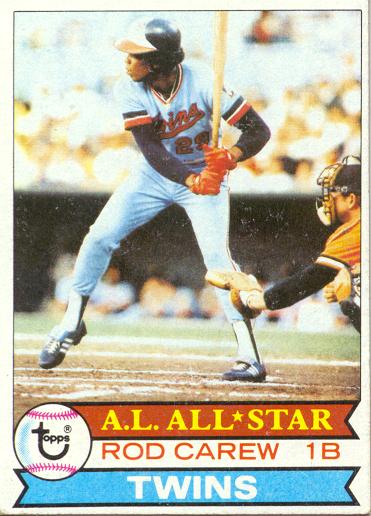
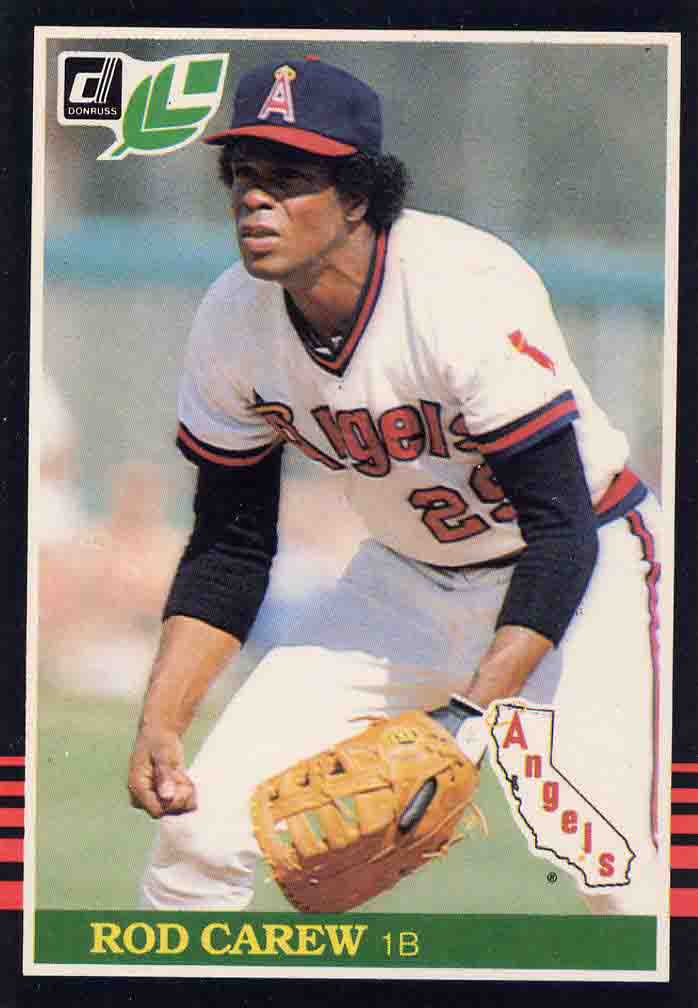
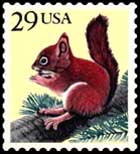
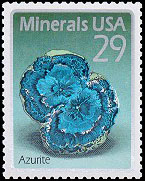
.jpg)

